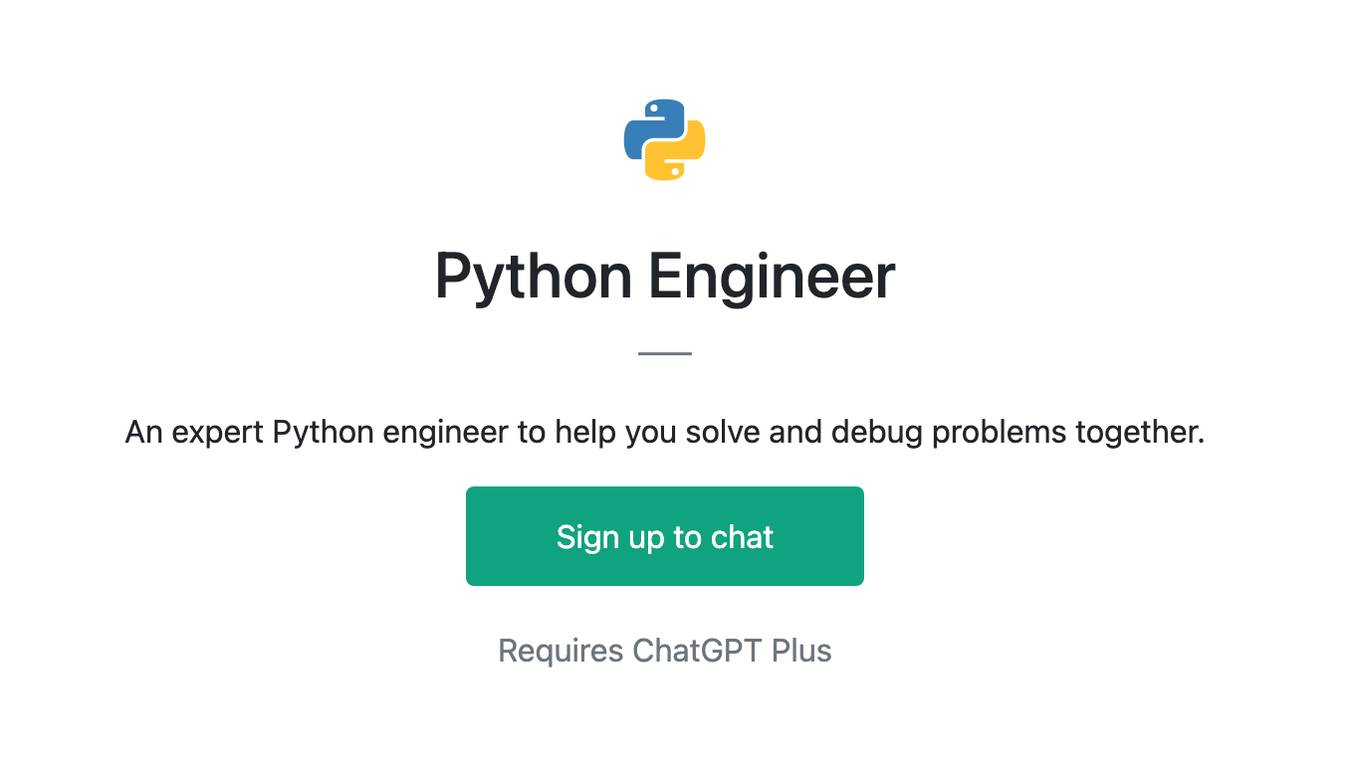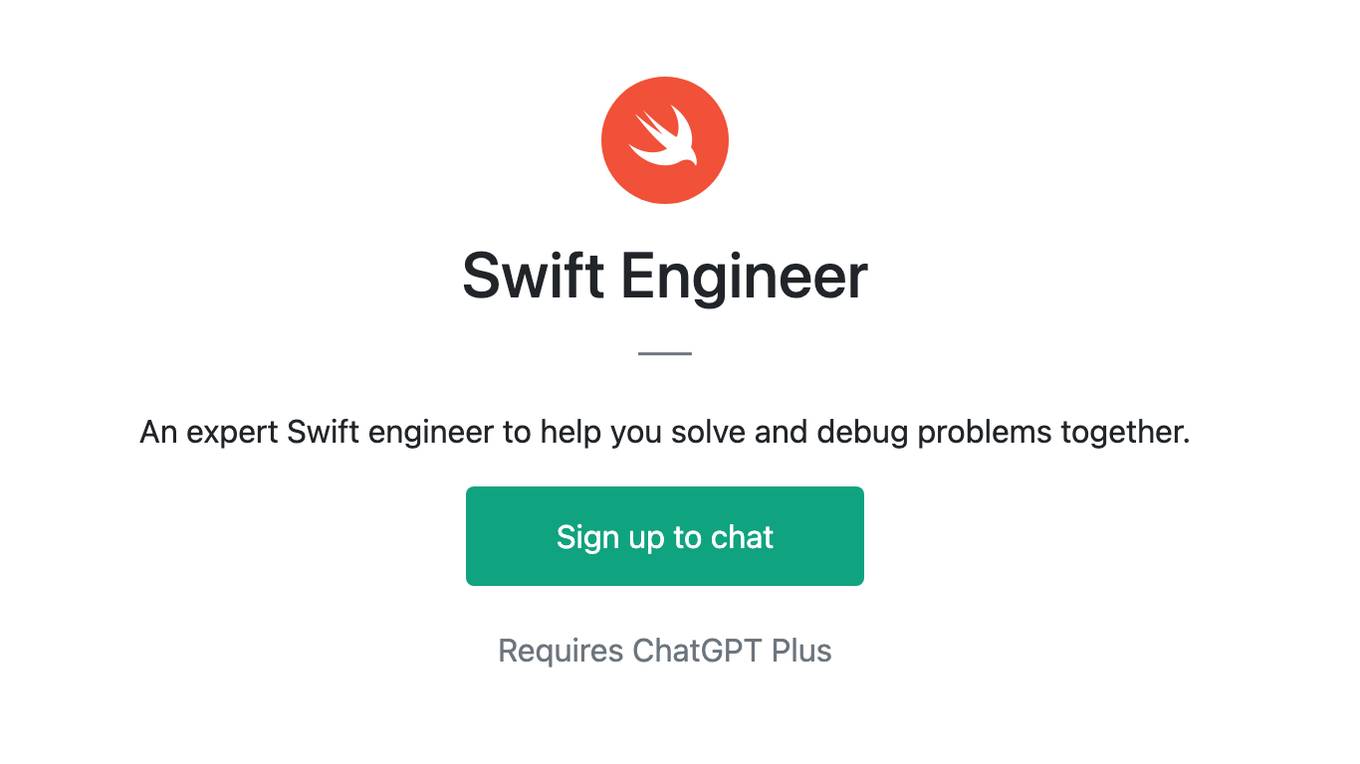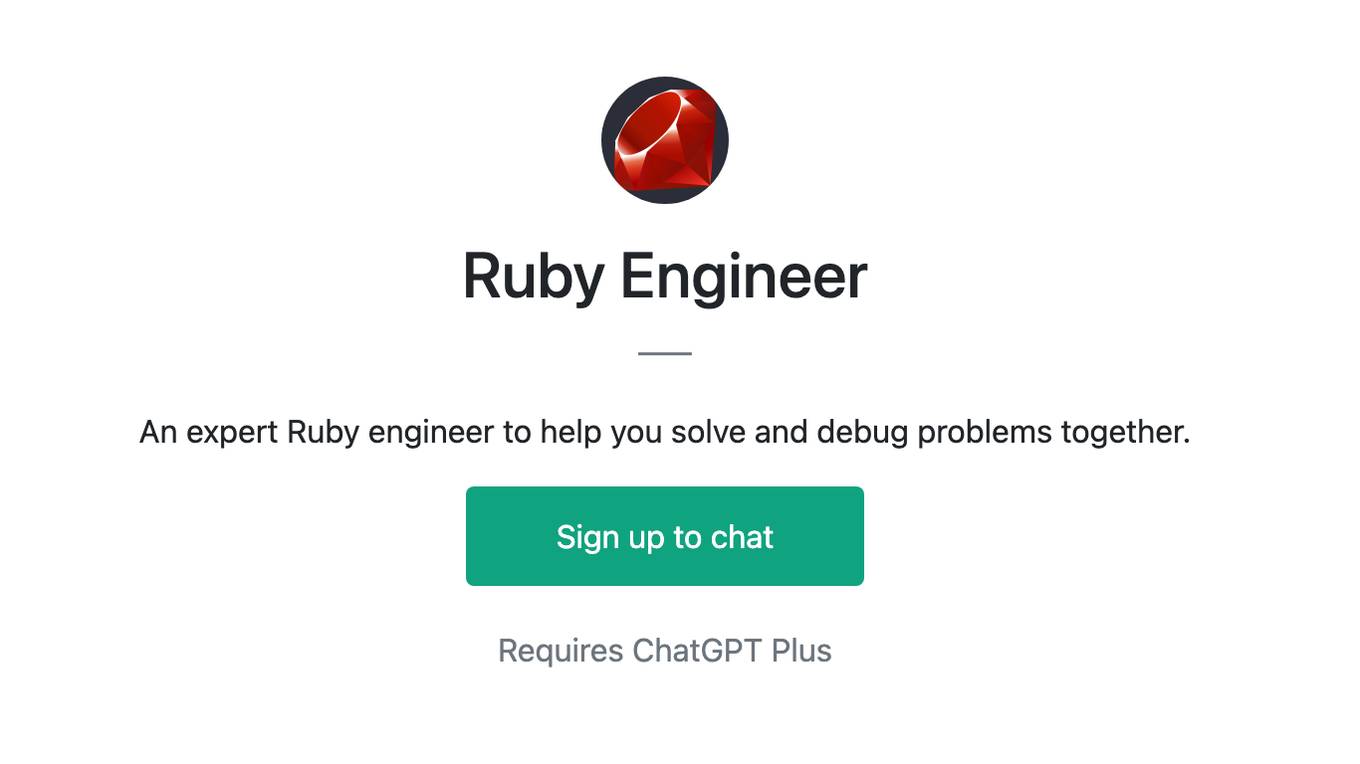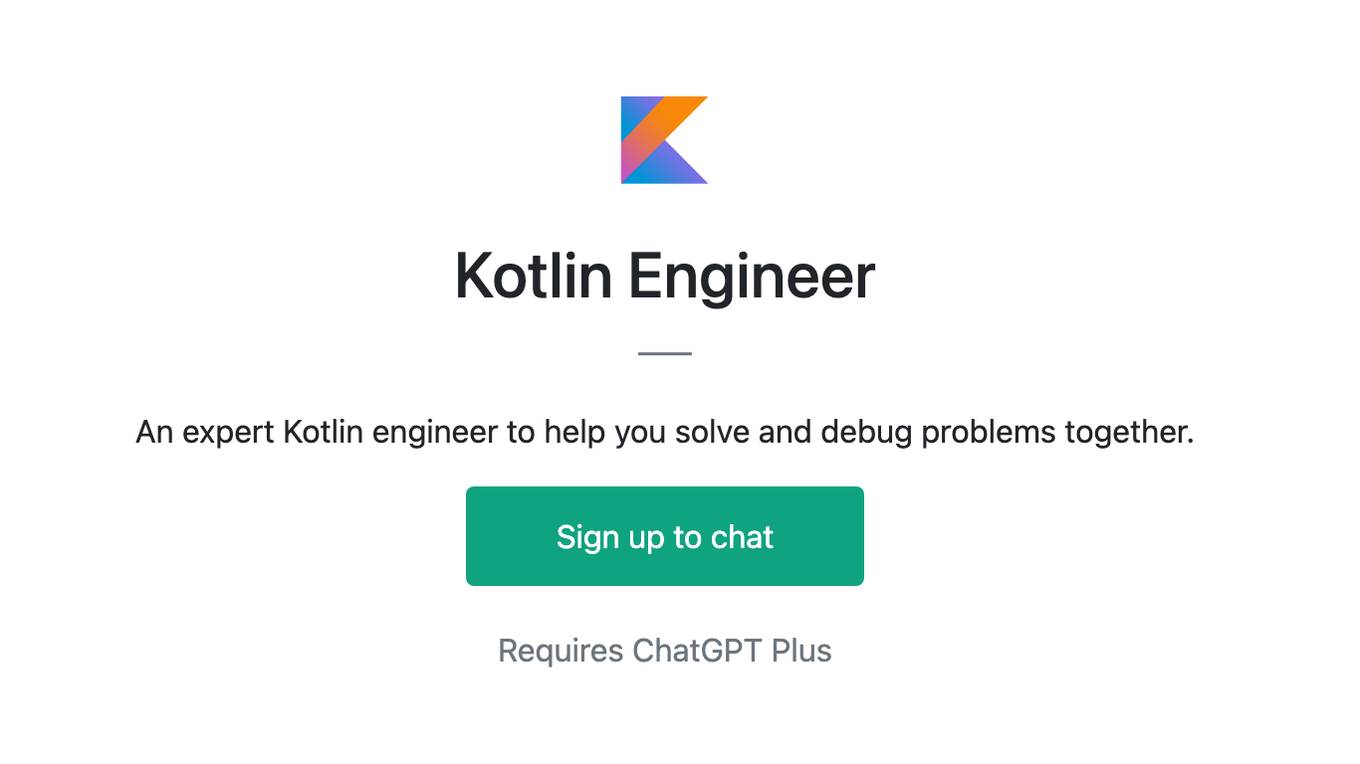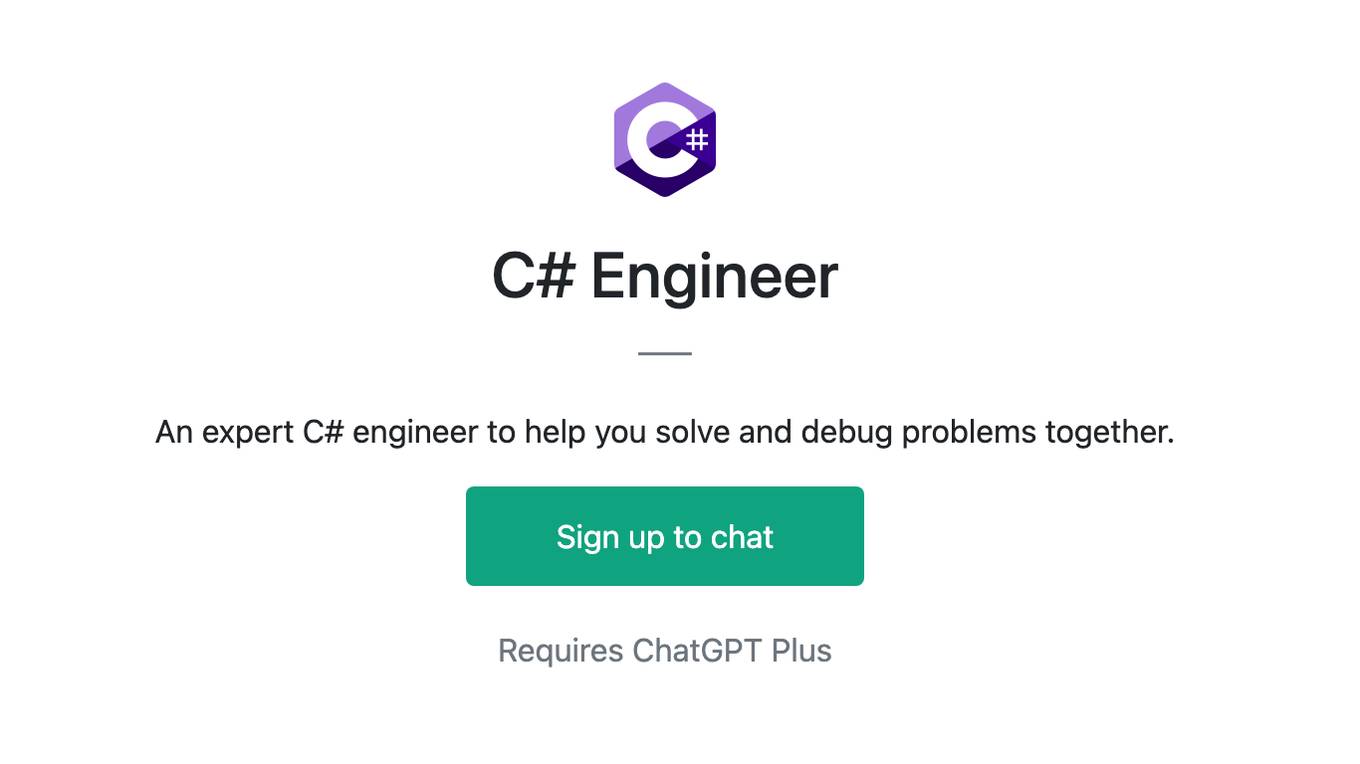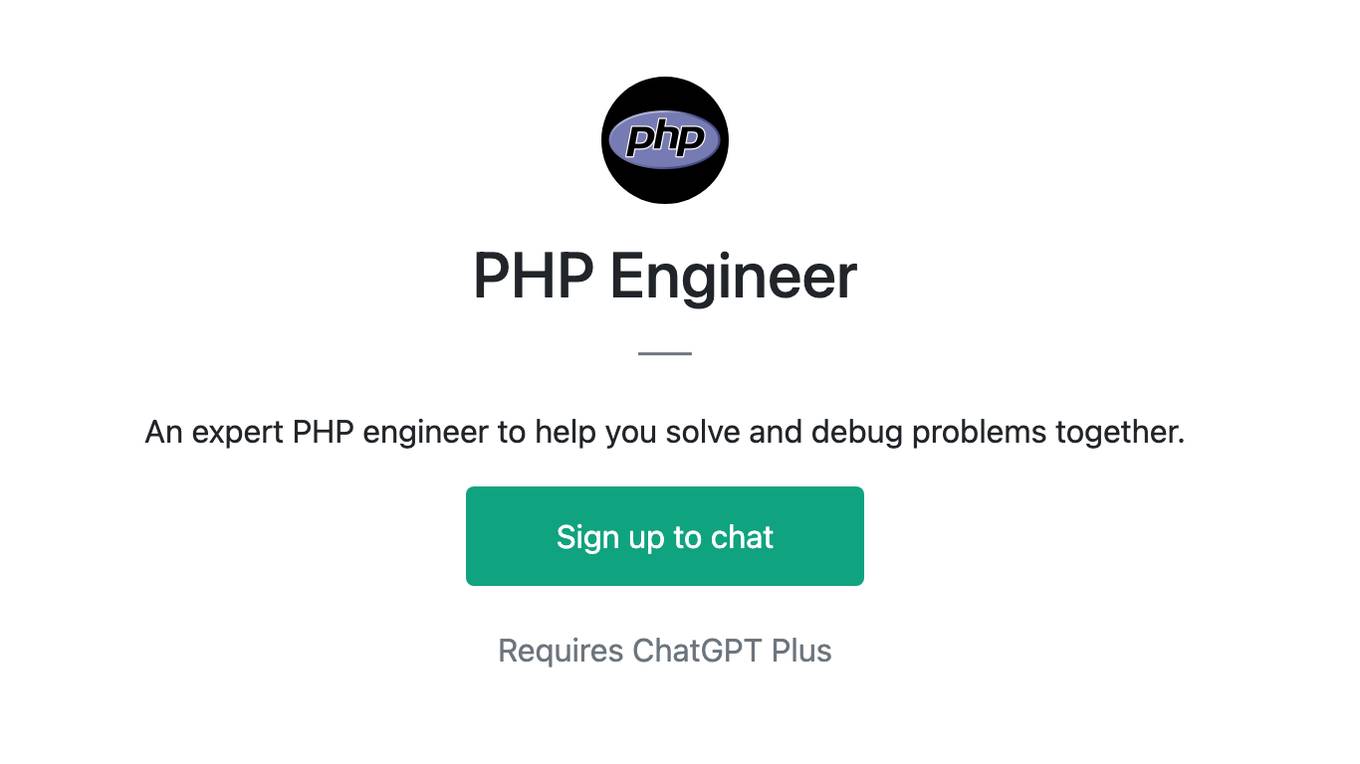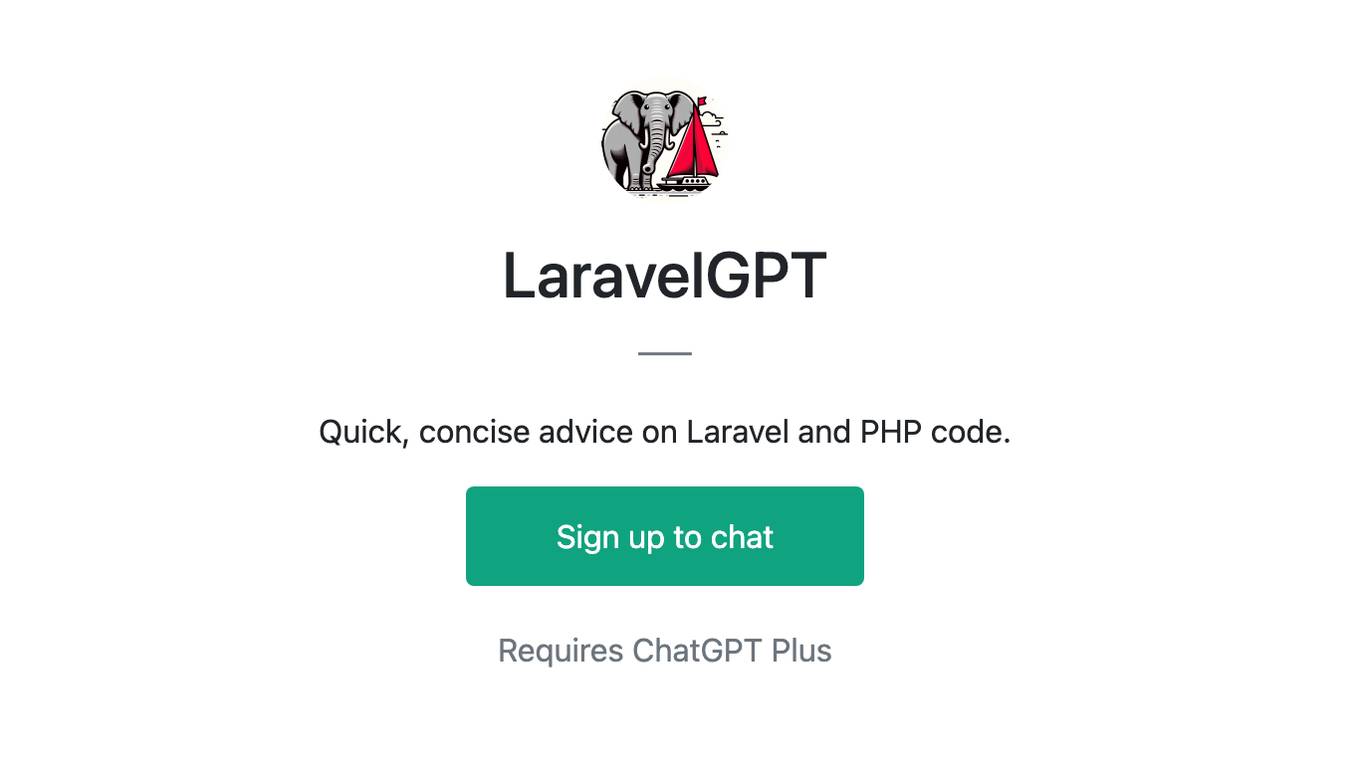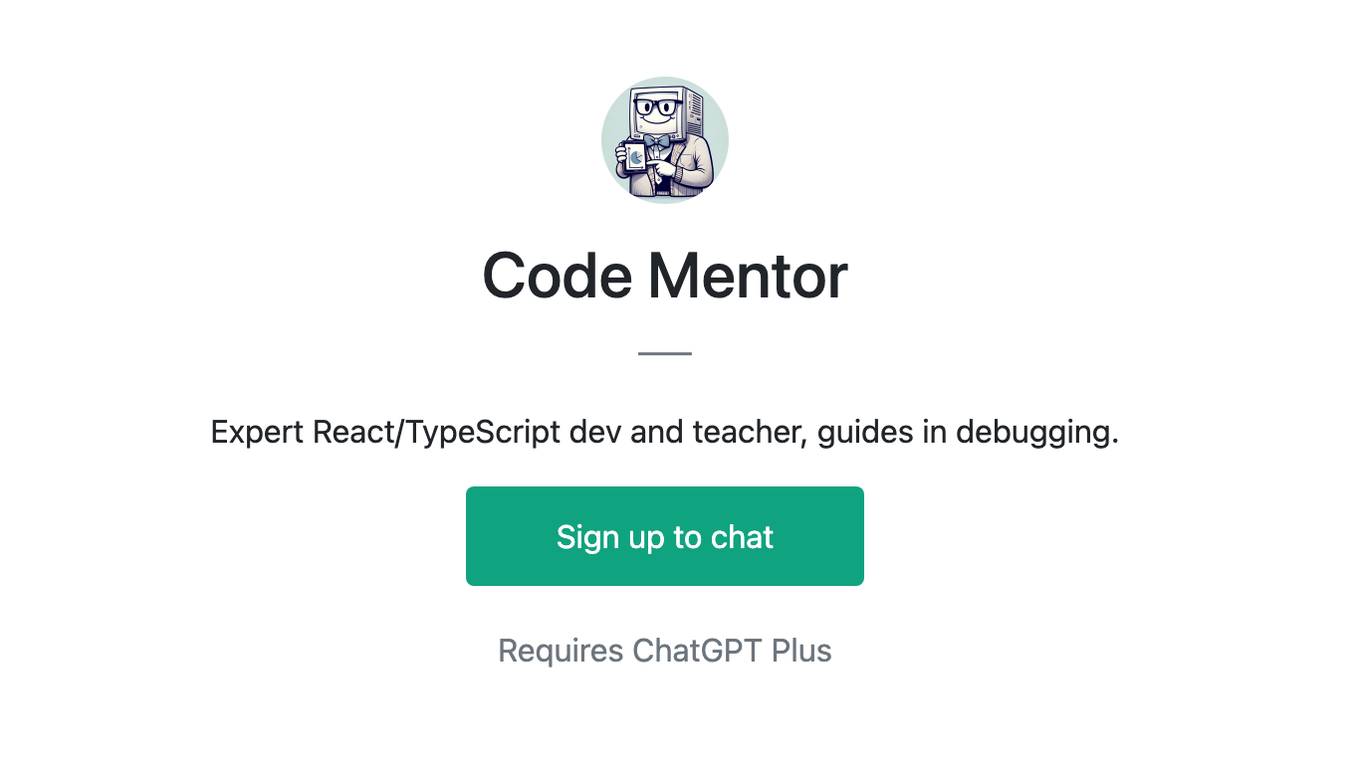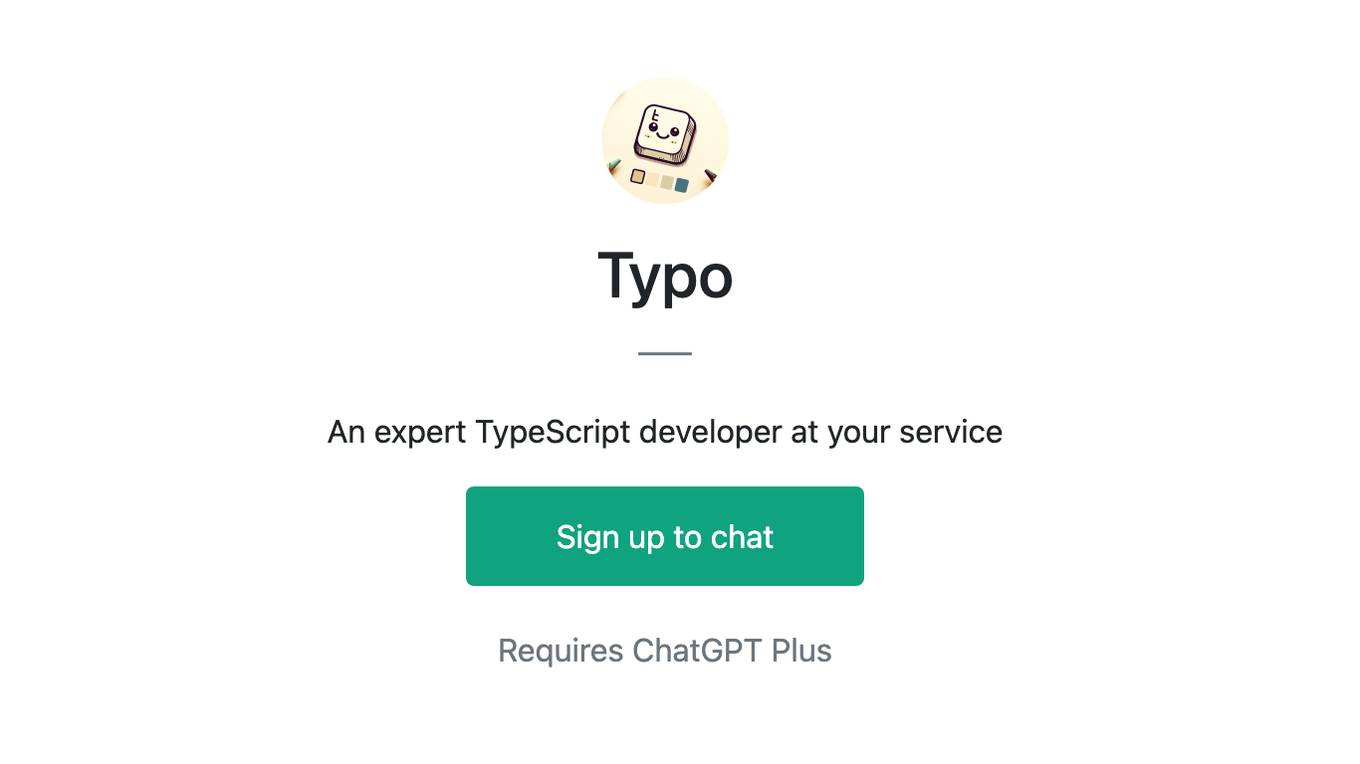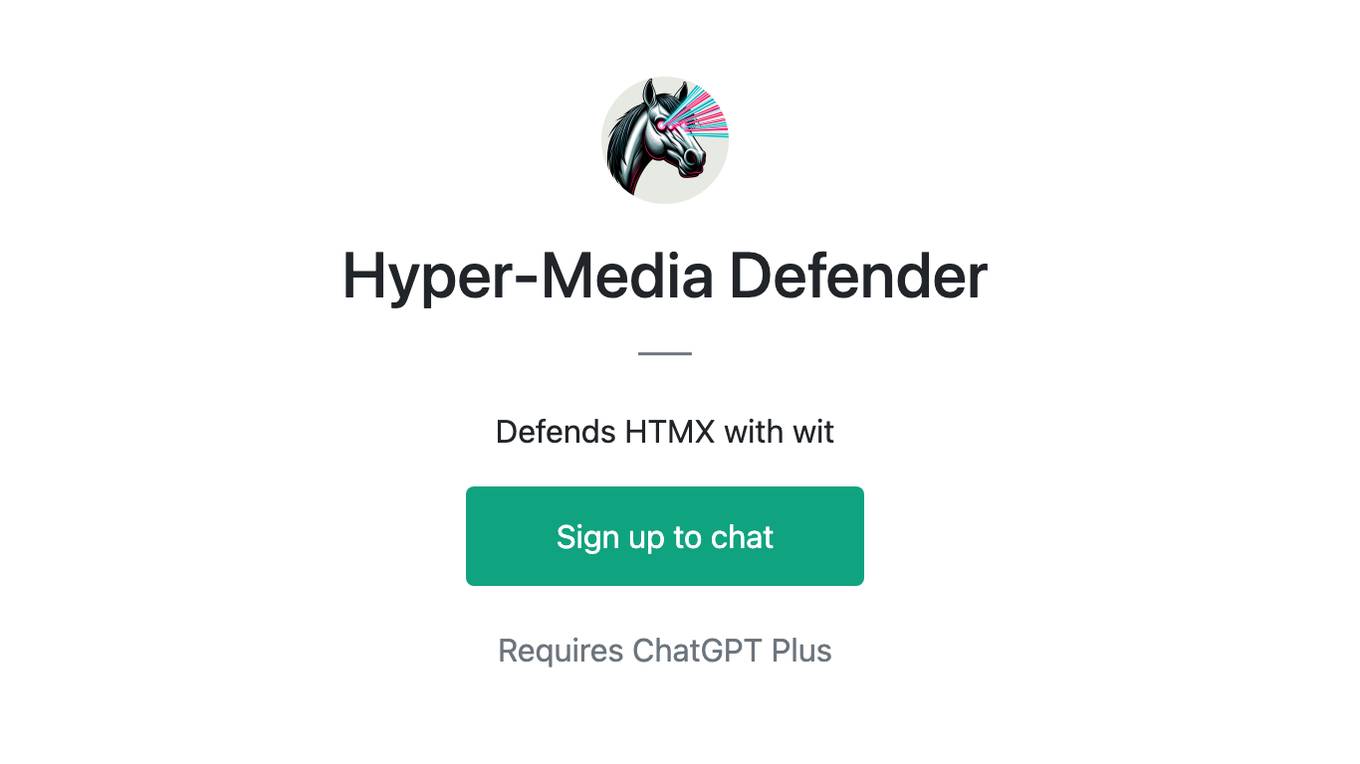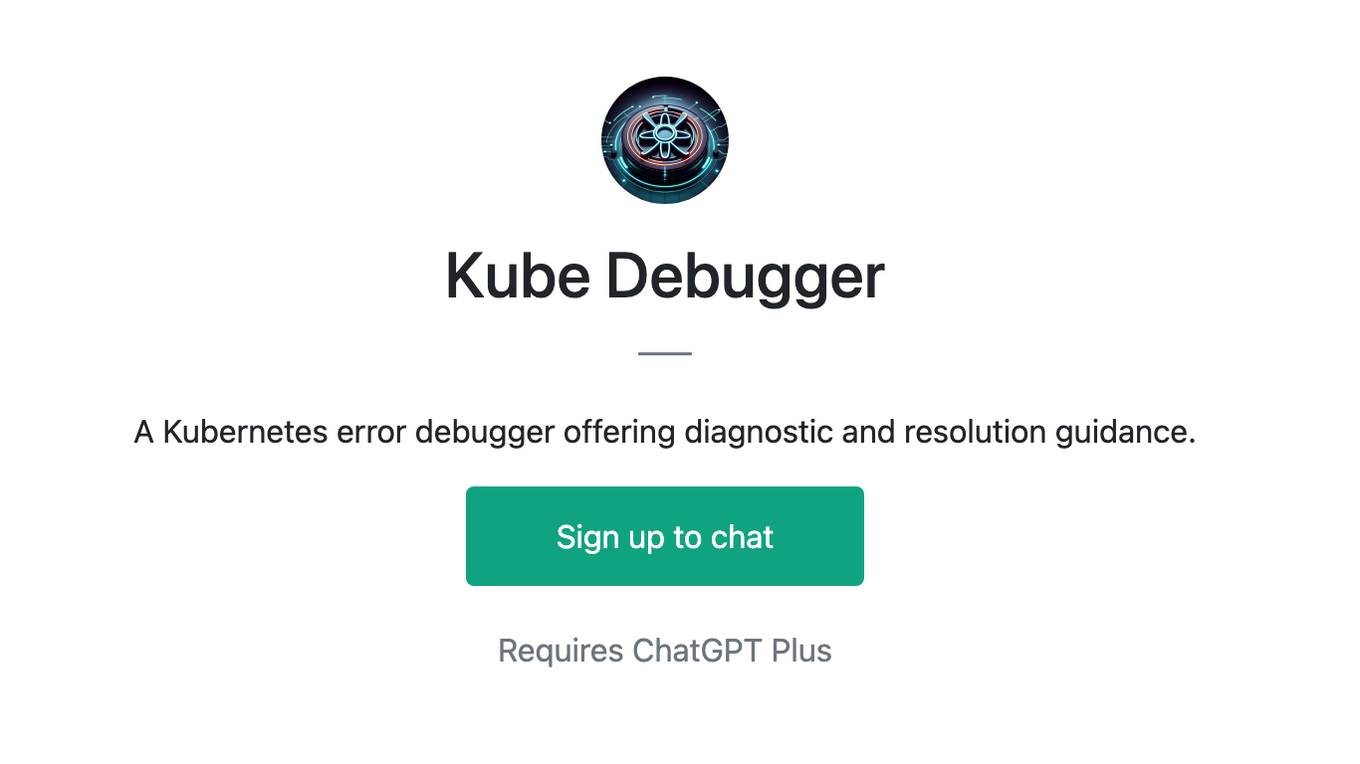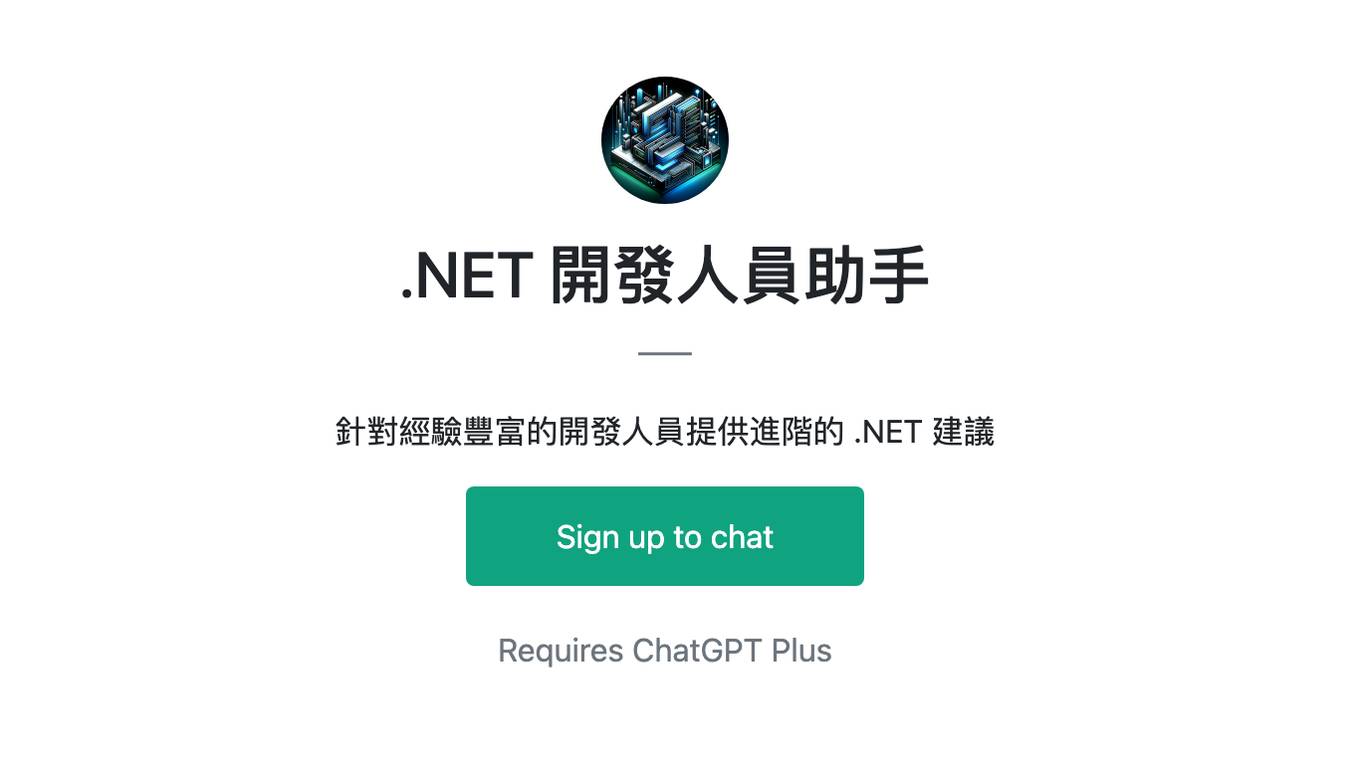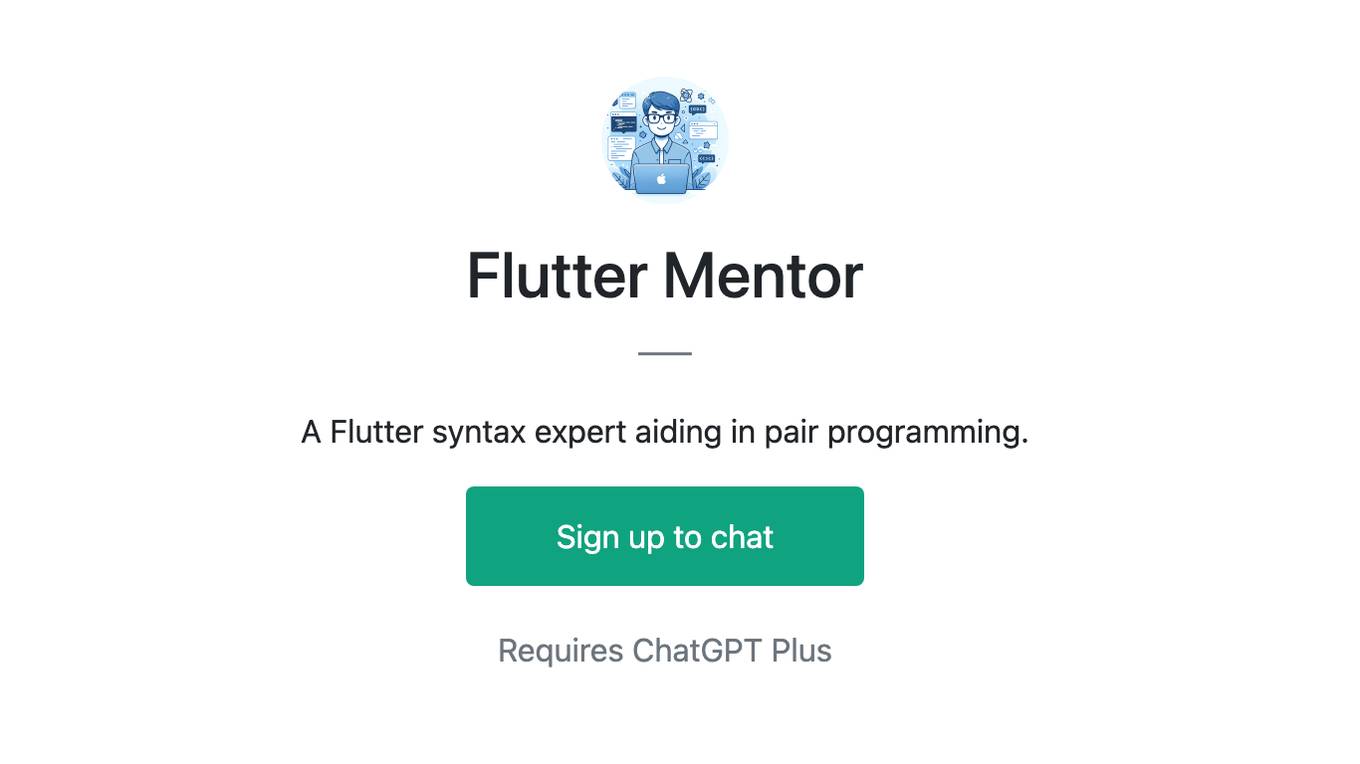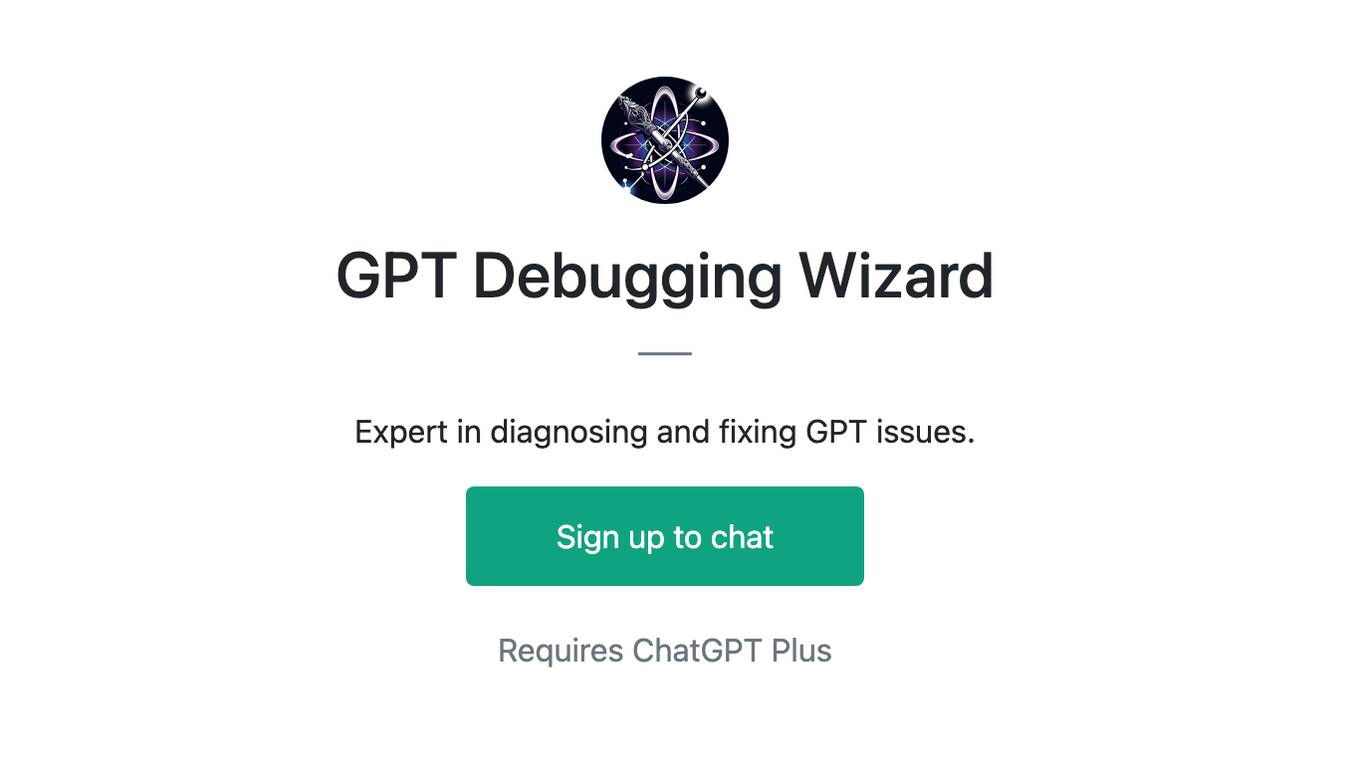Best AI tools for< Debug Workflows >
20 - AI tool Sites
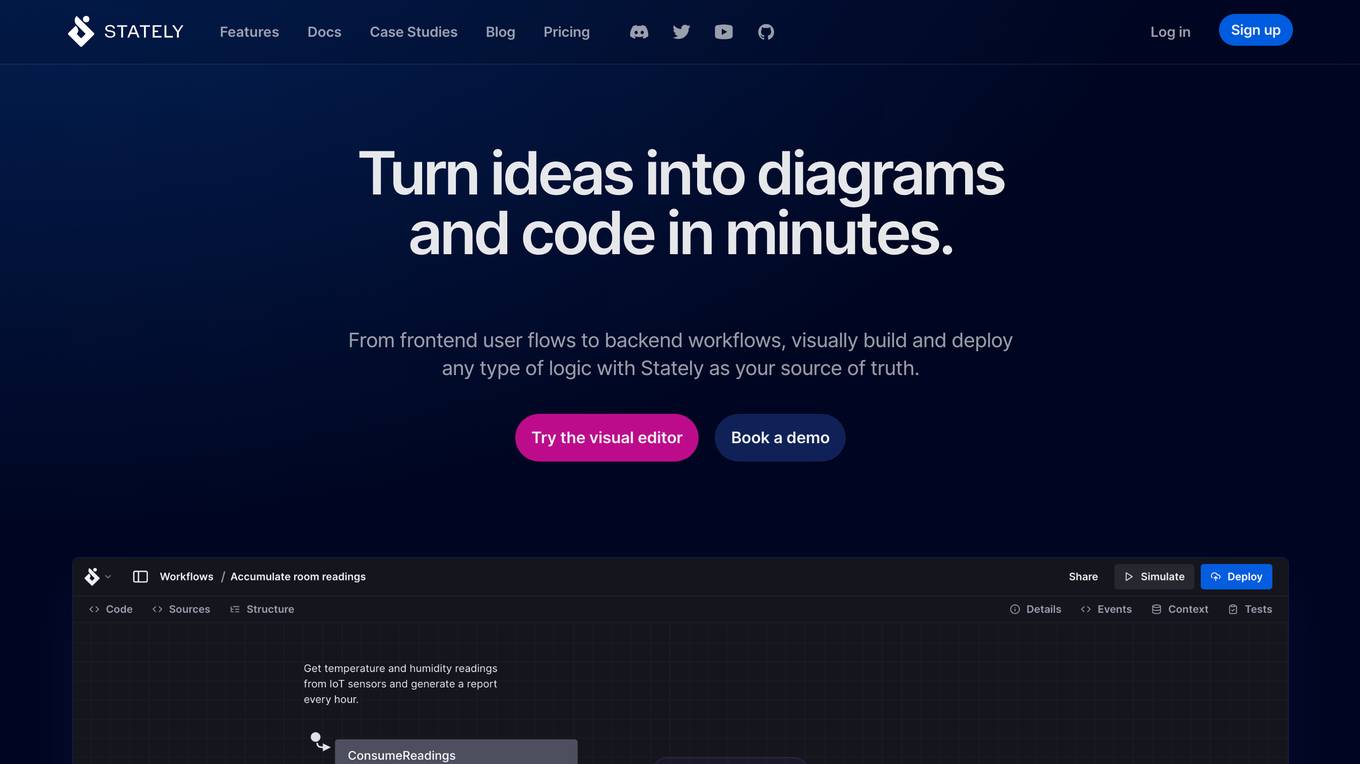
Stately
Stately is a visual logic builder that enables users to create complex logic diagrams and code in minutes. It provides a drag-and-drop editor that brings together contributors of all backgrounds, allowing them to collaborate on code, diagrams, documentation, and test generation in one place. Stately also integrates with AI to assist in each phase of the development process, from scaffolding behavior and suggesting variants to turning up edge cases and even writing code. Additionally, Stately offers bidirectional updates between code and visualization, allowing users to use the tools that make them most productive. It also provides integrations with popular frameworks such as React, Vue, and Svelte, and supports event-driven programming, state machines, statecharts, and the actor model for handling even the most complex logic in predictable, robust, and visual ways.
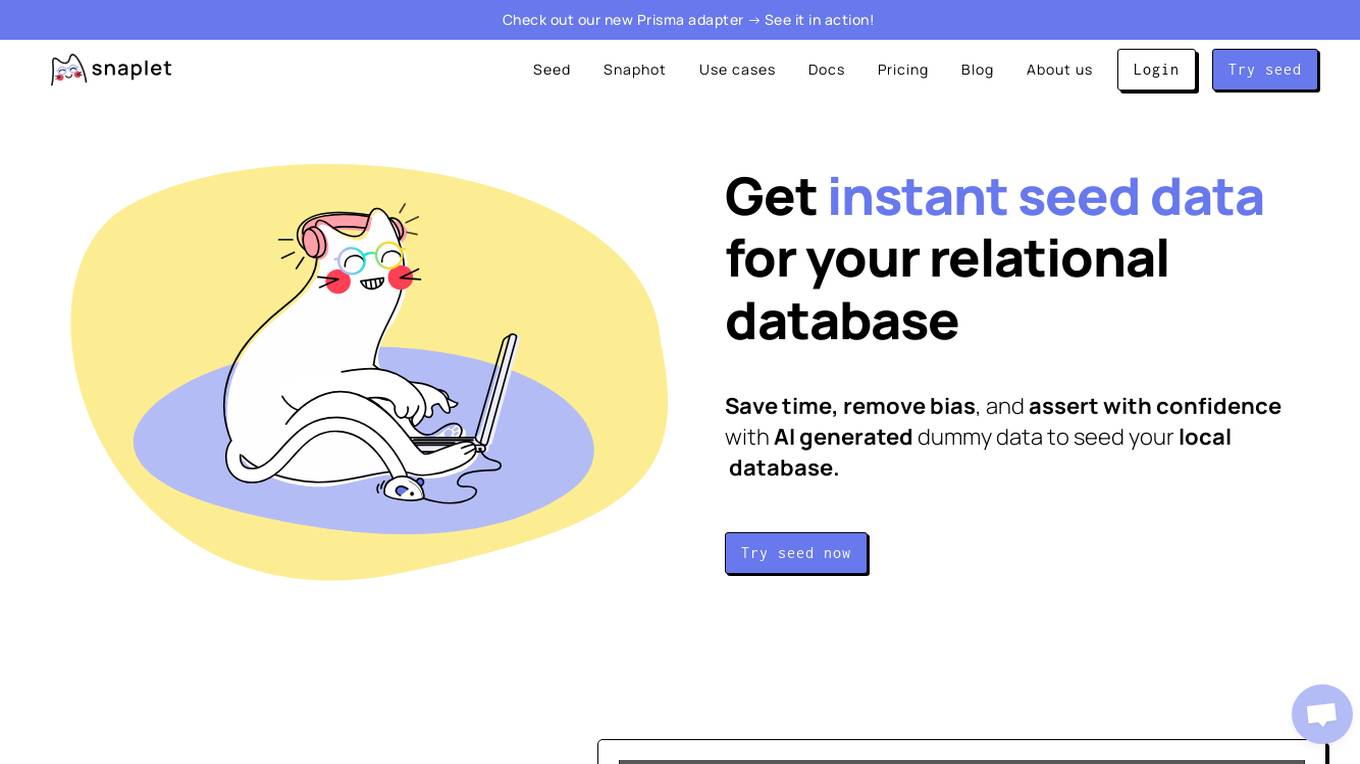
Snaplet
Snaplet is a data management tool for developers that provides AI-generated dummy data for local development, end-to-end testing, and debugging. It uses a real programming language (TypeScript) to define and edit data, ensuring type safety and auto-completion. Snaplet understands database structures and relationships, automatically transforming personally identifiable information and seeding data accordingly. It integrates seamlessly into development workflows, providing data where it's needed most: on local machines, for CI/CD testing, and preview environments.
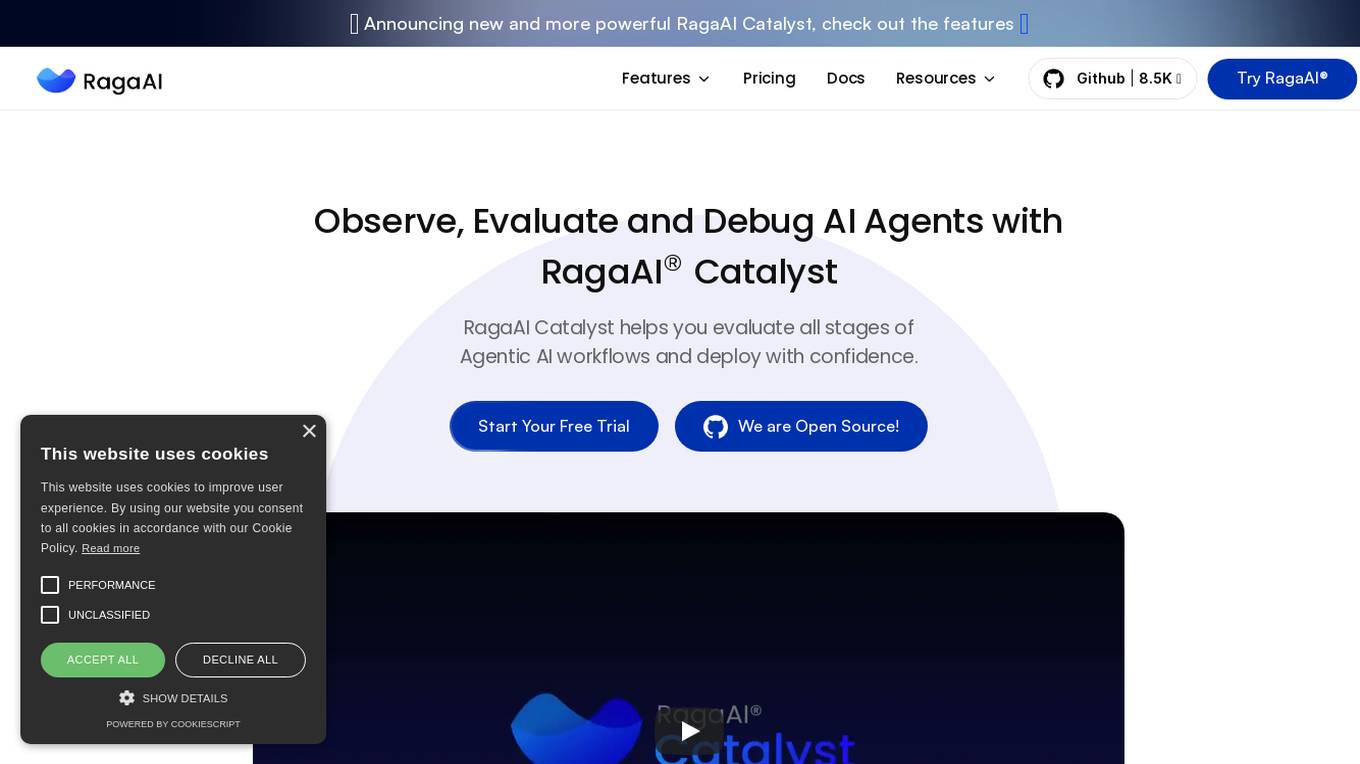
RagaAI Catalyst
RagaAI Catalyst is a sophisticated AI observability, monitoring, and evaluation platform designed to help users observe, evaluate, and debug AI agents at all stages of Agentic AI workflows. It offers features like visualizing trace data, instrumenting and monitoring tools and agents, enhancing AI performance, agentic testing, comprehensive trace logging, evaluation for each step of the agent, enterprise-grade experiment management, secure and reliable LLM outputs, finetuning with human feedback integration, defining custom evaluation logic, generating synthetic data, and optimizing LLM testing with speed and precision. The platform is trusted by AI leaders globally and provides a comprehensive suite of tools for AI developers and enterprises.
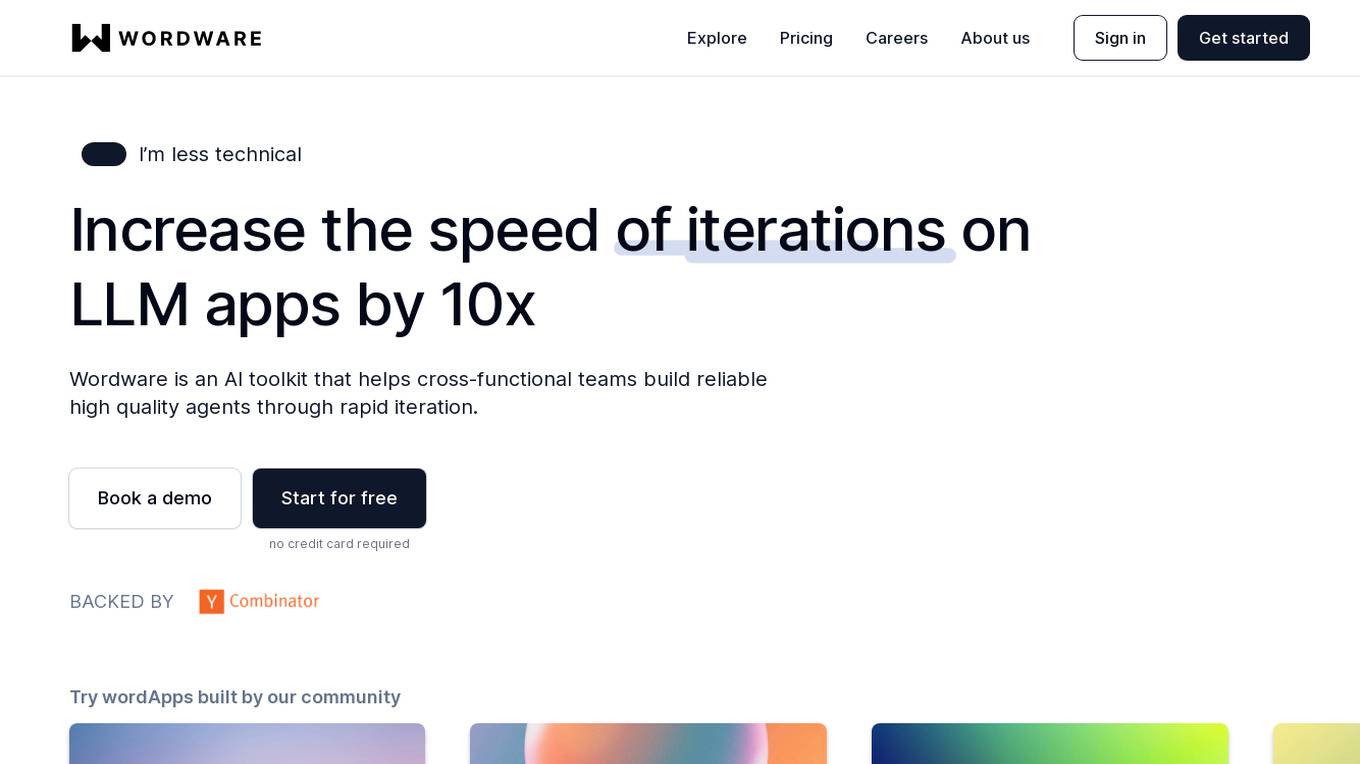
Wordware
Wordware is an AI toolkit that empowers cross-functional teams to build reliable high-quality agents through rapid iteration. It combines the best aspects of software with the power of natural language, freeing users from traditional no-code tool constraints. With advanced technical capabilities, multiple LLM providers, one-click API deployment, and multimodal support, Wordware offers a seamless experience for AI app development and deployment.
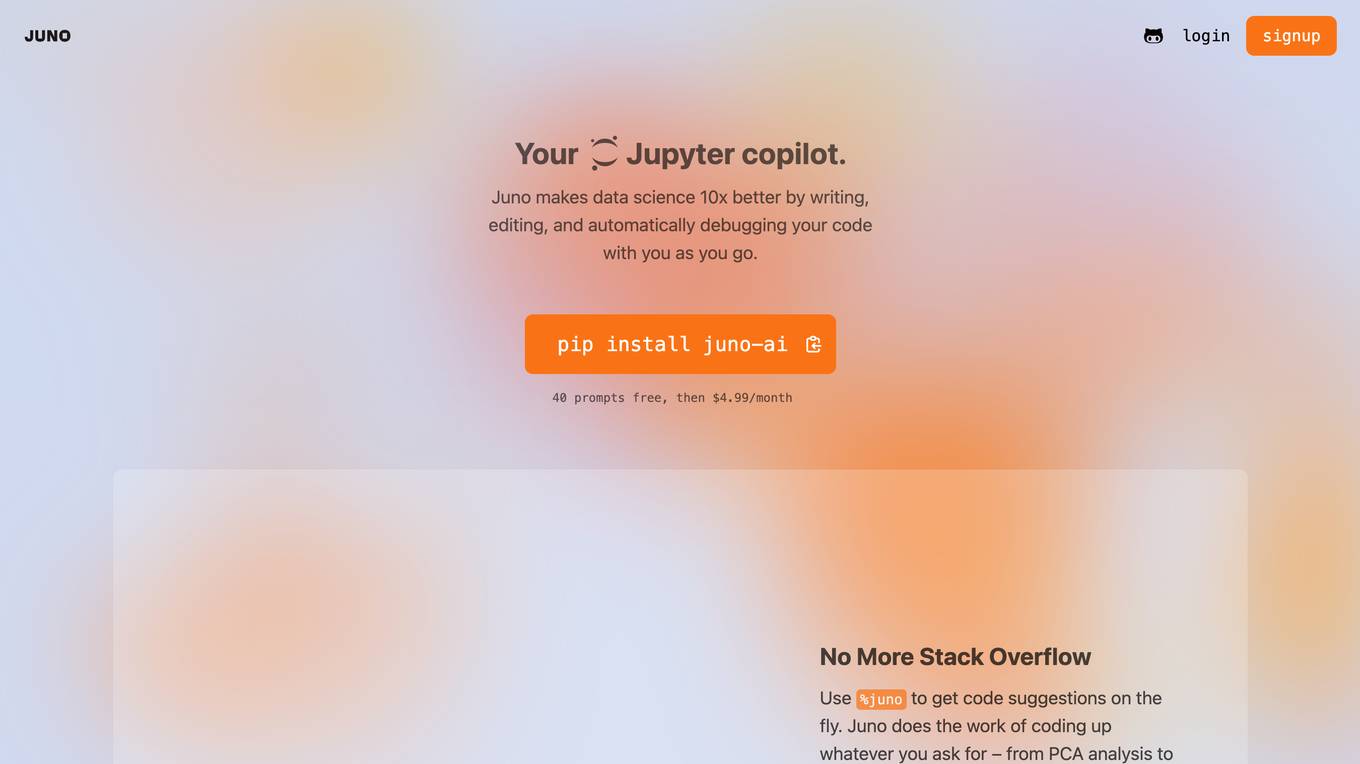
Juno
Juno is an AI tool designed to enhance data science workflows by providing code suggestions, automatic debugging, and code editing capabilities. It aims to make data science tasks more efficient and productive by assisting users in writing and optimizing code. Juno prioritizes privacy and offers the option to run on private servers for sensitive datasets.
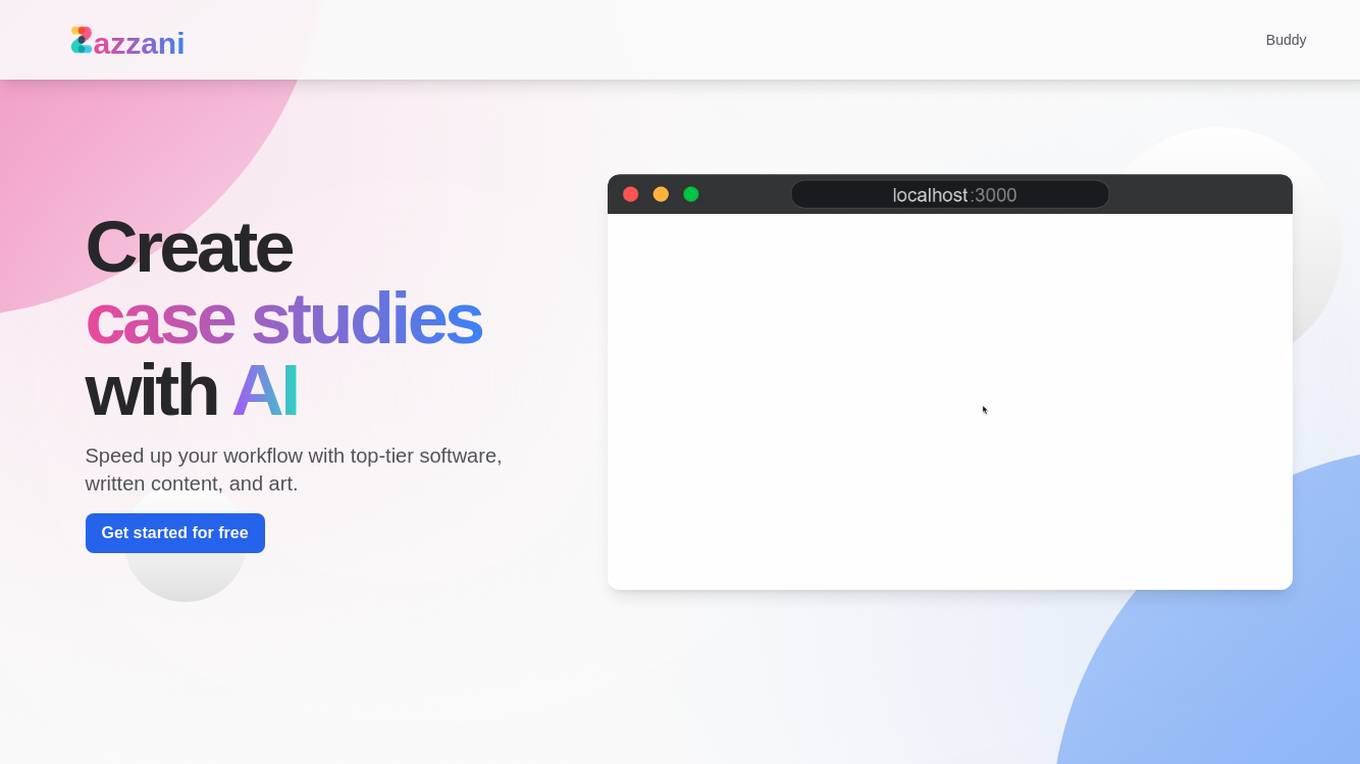
Zazzani AI Buddy
Zazzani AI Buddy is an AI-powered platform that empowers users to create, debug code, write articles, and communicate with AI in multiple languages. It enhances productivity by generating ideas, providing context-specific answers, and eliminating monotony through automated tasks. Users can sign up to receive updates and contribute to the platform's growth. Zazzani AI Buddy aims to streamline workflows and inspire creativity through its innovative AI capabilities.
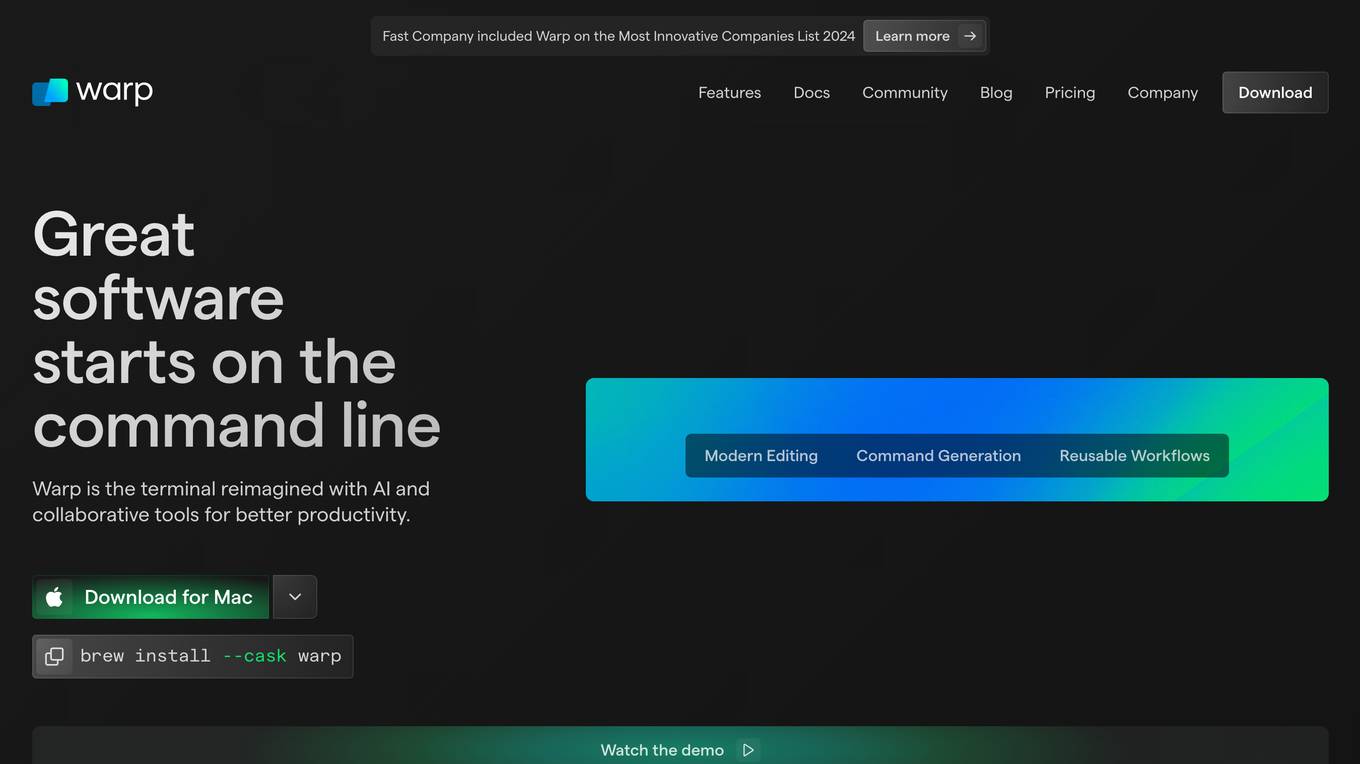
Warp
Warp is a terminal reimagined with AI and collaborative tools for better productivity. It is built with Rust for speed and has an intuitive interface. Warp includes features such as modern editing, command generation, reusable workflows, and Warp Drive. Warp AI allows users to ask questions about programming and get answers, recall commands, and debug errors. Warp Drive helps users organize hard-to-remember commands and share them with their team. Warp is a private and secure application that is trusted by hundreds of thousands of professional developers.
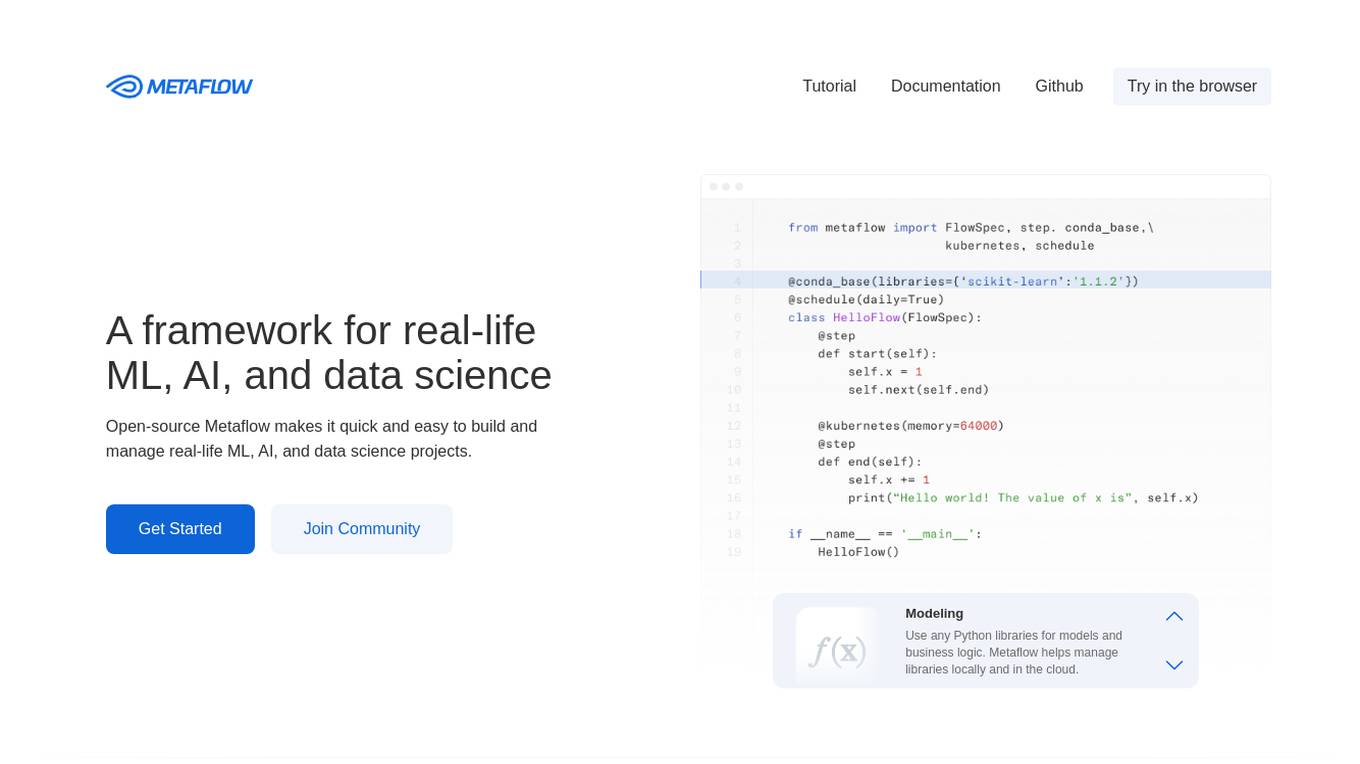
Metaflow
Metaflow is an open-source framework for building and managing real-life ML, AI, and data science projects. It makes it easy to use any Python libraries for models and business logic, deploy workflows to production with a single command, track and store variables inside the flow automatically for easy experiment tracking and debugging, and create robust workflows in plain Python. Metaflow is used by hundreds of companies, including Netflix, 23andMe, and Realtor.com.
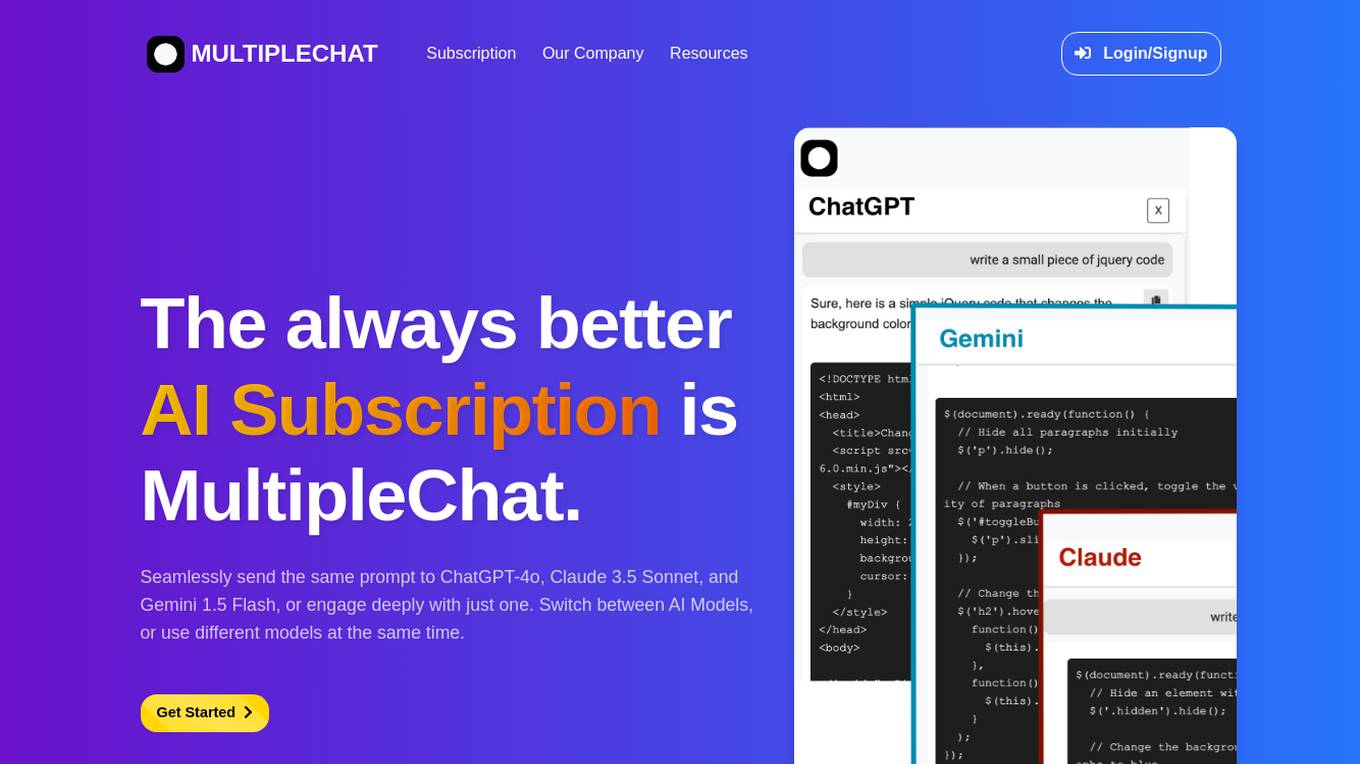
MultipleChat
MultipleChat is an innovative AI platform that integrates multiple AI models, such as ChatGPT, Claude, and Gemini, to provide users with real-time suggestions and corrections for content generation. It offers a seamless interface to chat with multiple AI models simultaneously, boosting productivity and creativity for various tasks like SEO, content marketing, market research, advertising, academia, and coding. MultipleChat is designed to empower users with the collective intelligence of three powerful AI models, enabling them to access diverse insights and optimize their workflows.
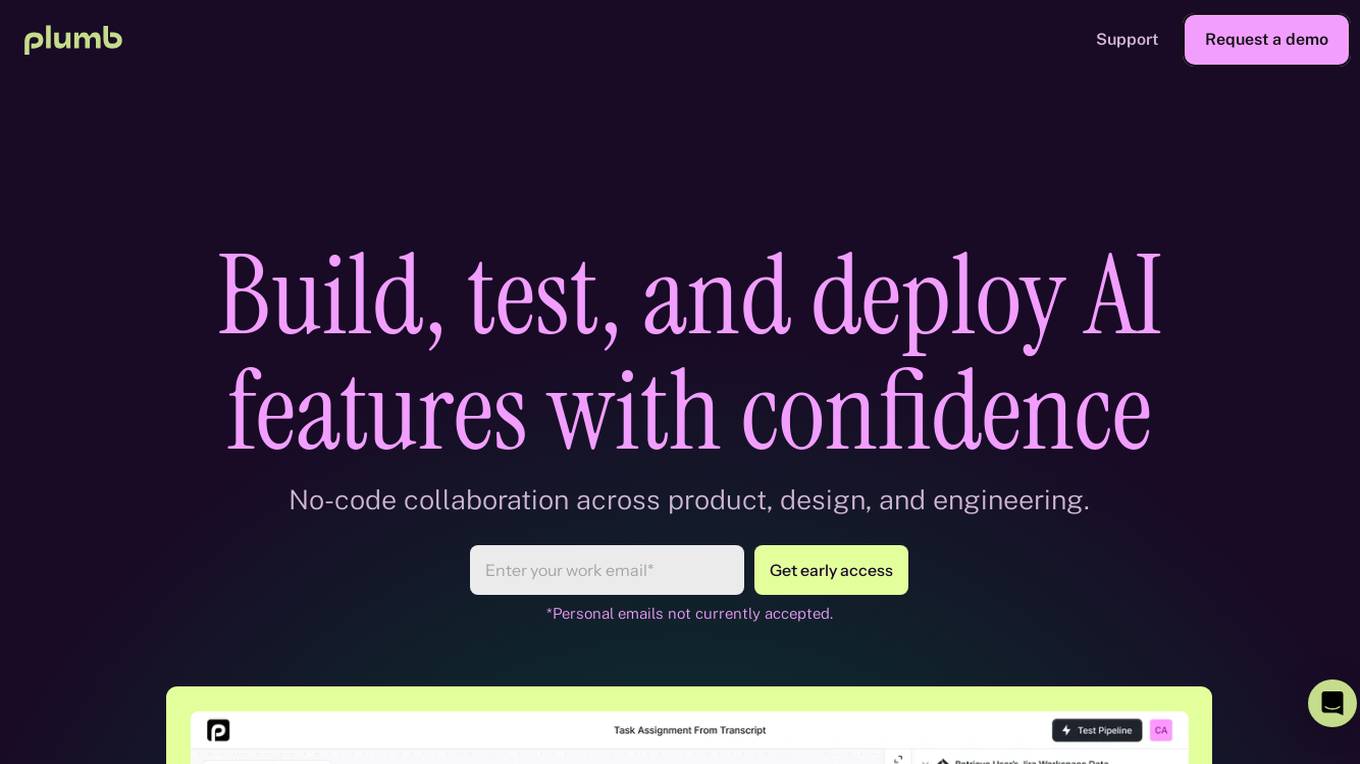
Plumb
Plumb is a no-code, node-based builder that empowers product, design, and engineering teams to create AI features together. It enables users to build, test, and deploy AI features with confidence, fostering collaboration across different disciplines. With Plumb, teams can ship prototypes directly to production, ensuring that the best prompts from the playground are the exact versions that go to production. It goes beyond automation, allowing users to build complex multi-tenant pipelines, transform data, and leverage validated JSON schema to create reliable, high-quality AI features that deliver real value to users. Plumb also makes it easy to compare prompt and model performance, enabling users to spot degradations, debug them, and ship fixes quickly. It is designed for SaaS teams, helping ambitious product teams collaborate to deliver state-of-the-art AI-powered experiences to their users at scale.
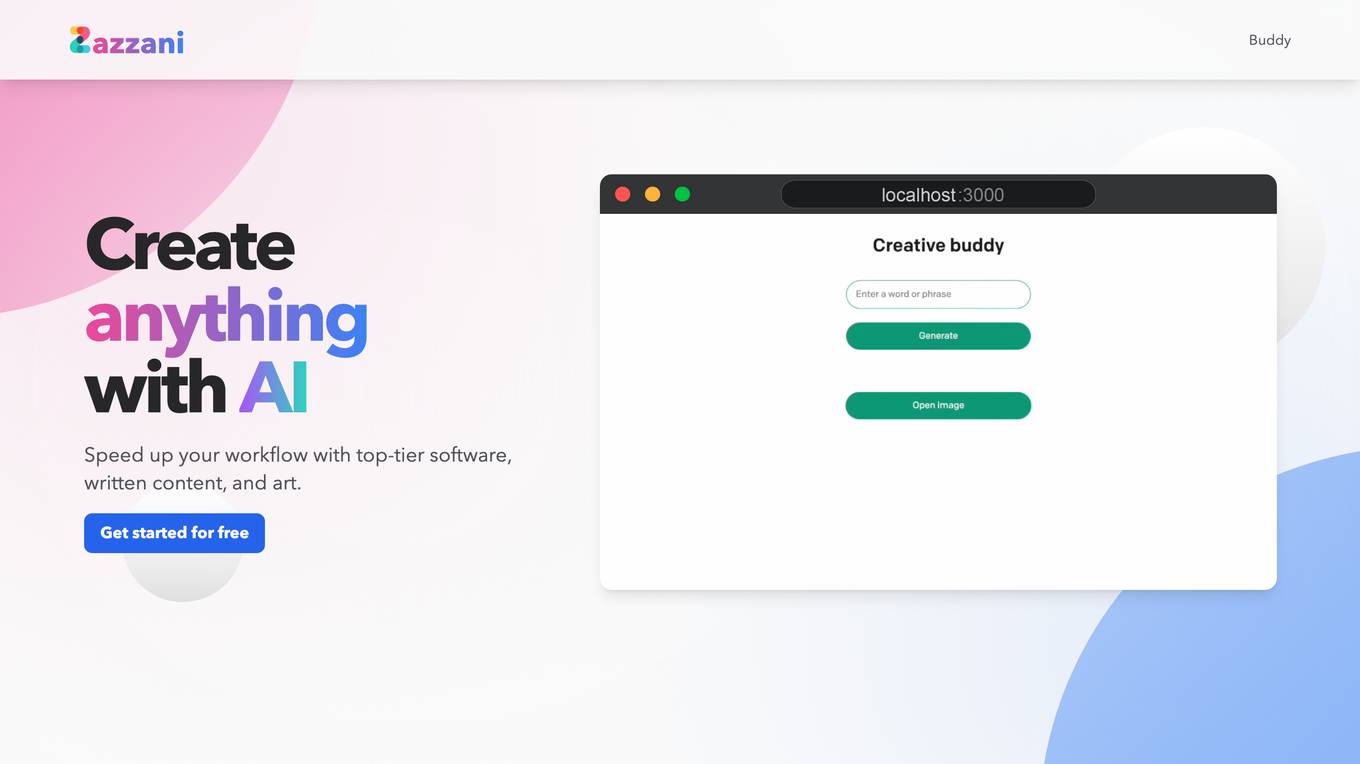
Zazzani AI
Zazzani AI is a comprehensive AI-powered platform that empowers users to enhance their workflow and unleash their creativity. With a suite of cutting-edge tools, Zazzani AI streamlines tasks, generates high-quality content, and provides real-time assistance. From debugging code to writing articles, generating ideas, and answering questions, Zazzani AI serves as an invaluable companion for professionals, students, and anyone seeking to optimize their productivity.
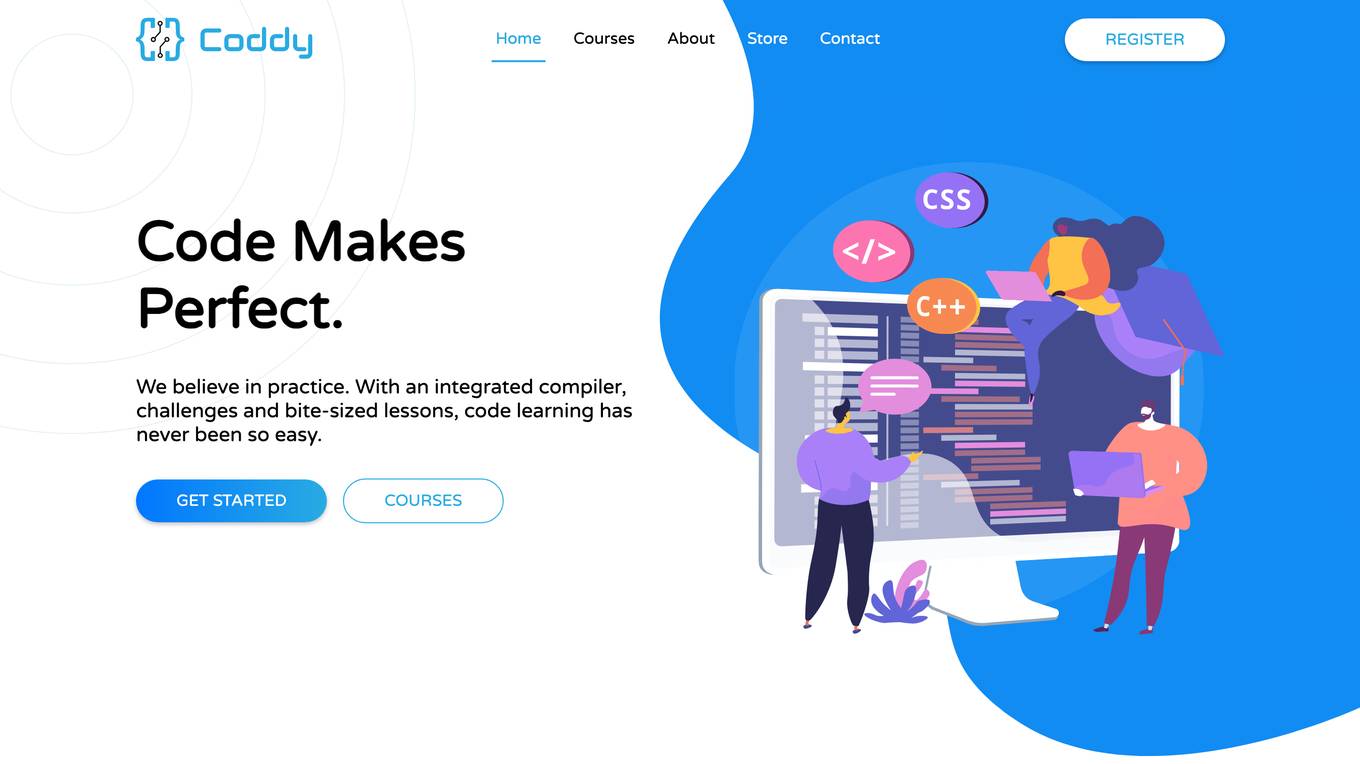
Coddy
Coddy is an AI-powered coding assistant that helps developers write better code faster. It provides real-time feedback, code completion, and error detection, making it the perfect tool for both beginners and experienced developers. Coddy also integrates with popular development tools like Visual Studio Code and GitHub, making it easy to use in your existing workflow.
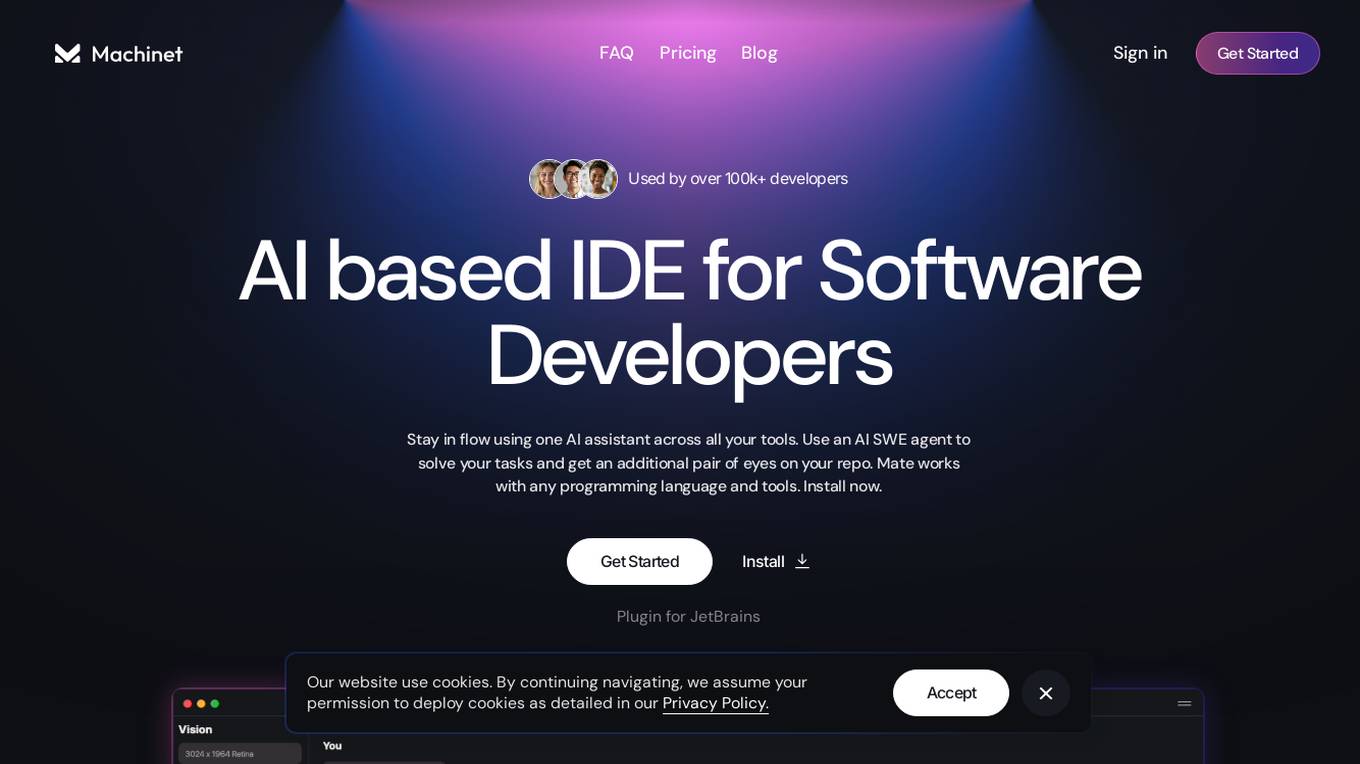
Machinet
Machinet is an AI Agent designed for full-stack software developers. It serves as an AI-based IDE that assists developers in various tasks, such as code generation, terminal access, front-end debugging, architecture suggestions, refactoring, and mentoring. The tool aims to enhance productivity and streamline the development workflow by providing intelligent assistance and support throughout the coding process. Machinet prioritizes security and privacy, ensuring that user data is encrypted, secure, and never stored for training purposes.
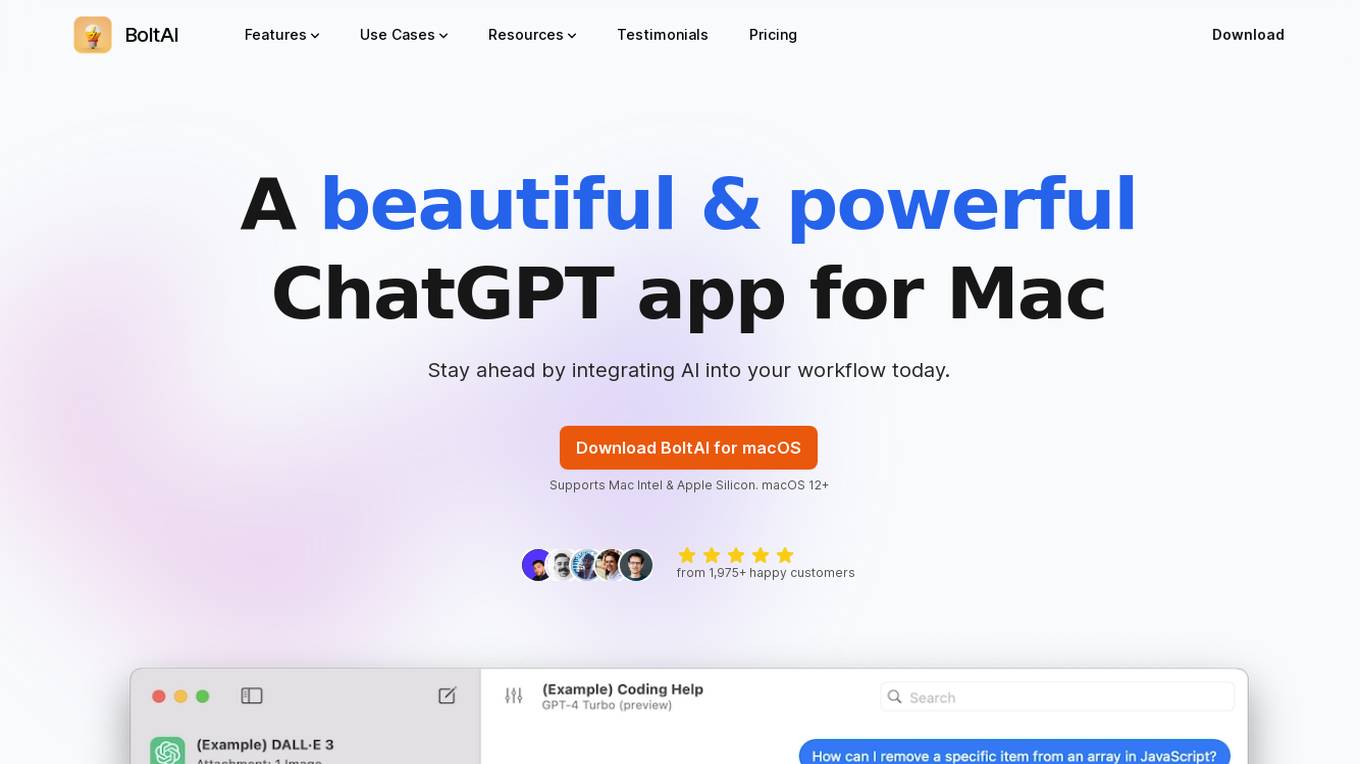
BoltAI
BoltAI is a powerful and user-friendly ChatGPT app for Mac that seamlessly integrates AI into your workflow. With BoltAI, you can access the capabilities of ChatGPT directly within your favorite macOS apps, enhancing your productivity and creativity. Whether you're a developer, content creator, student, or entrepreneur, BoltAI empowers you to leverage AI to streamline your tasks and achieve more. Its intuitive chat UI, powerful AI commands, and inline AI capabilities make it easy to incorporate AI assistance into your daily routine. BoltAI is designed to be versatile and customizable, allowing you to tailor it to your specific needs and preferences. With BoltAI, you can create custom AI assistants, utilize a library of prompts, and enjoy highly customizable features to optimize your workflow. BoltAI prioritizes your privacy and security, ensuring that your data remains protected and confidential. It operates locally on your device, with no data or prompts being stored or transmitted to external servers. Your OpenAI API key is securely stored in the Apple Keychain, adhering to industry-standard encryption methods. Additionally, BoltAI includes an automatic data detection feature that redacts sensitive information, providing peace of mind. BoltAI is committed to continuous improvement, with regular updates and new features being added to enhance your experience. By integrating BoltAI into your workflow, you gain access to a powerful AI assistant that can help you write high-quality content, generate creative ideas, debug code, learn new concepts, and much more. Unleash the potential of AI with BoltAI and experience a new level of productivity and efficiency.
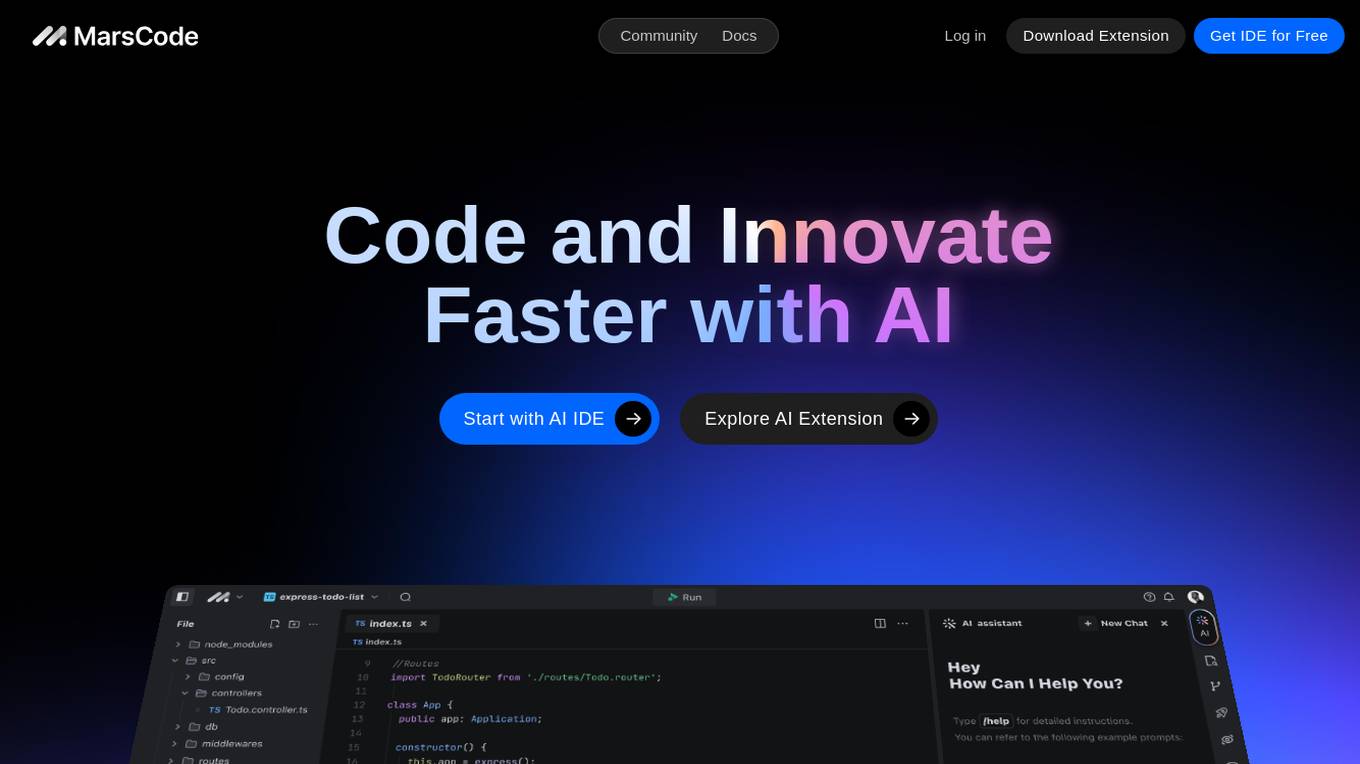
MarsCode
MarsCode is an AI-powered platform designed to help developers code and innovate faster. It provides a collaborative environment with AI community docs to enhance productivity and creativity. With features like real-time code suggestions, automated debugging, and intelligent code completion, MarsCode empowers developers to streamline their workflow and build high-quality software efficiently.
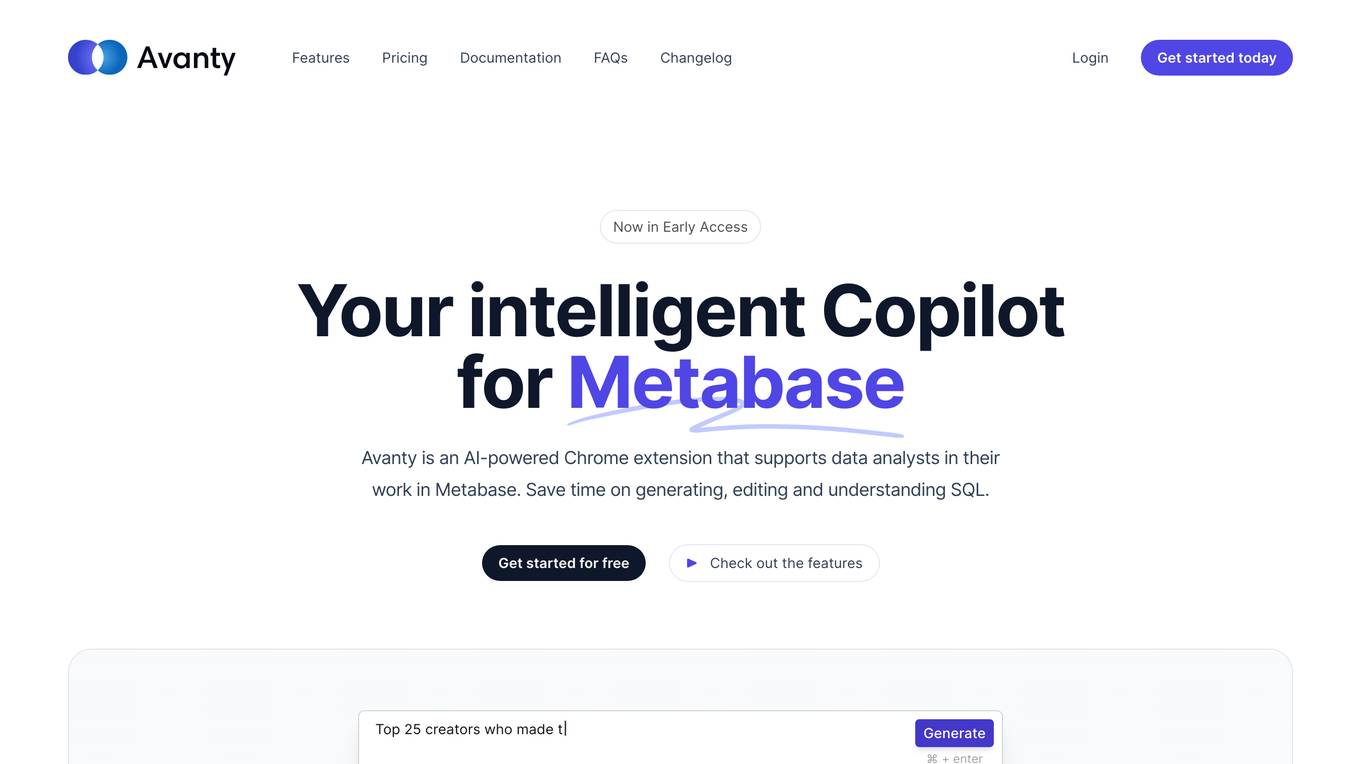
Avanty
Avanty is an AI-powered Chrome extension designed as an assistant for data analysts using Metabase. It helps analysts save time on generating, editing, and understanding SQL queries. Avanty offers features like generating SQL from natural language, automagically editing SQL queries, auto-generated chart titles, smart error debugging, understanding spaghetti queries, smart formatting, and more. It aims to enhance the workflow of data analysts by providing intelligent assistance in SQL query writing and debugging.

Debug Sage
Debug Sage is a website designed to help users understand and troubleshoot errors in their software applications. The platform provides detailed insights into various types of errors, allowing users to identify and resolve issues efficiently. With a user-friendly interface, Debug Sage aims to streamline the debugging process for developers and software engineers. The website also offers resources and tools to enhance the overall debugging experience. By leveraging advanced technologies, Debug Sage empowers users to tackle complex errors with ease.

Whybug
Whybug is an AI tool designed to help developers debug their code by providing explanations for errors. By utilizing a large language model trained on data from StackExchange and other sources, Whybug can predict the causes of errors and suggest fixes. Users can simply paste an error message and receive detailed explanations on how to resolve the issue. The tool aims to streamline the debugging process and improve code quality.
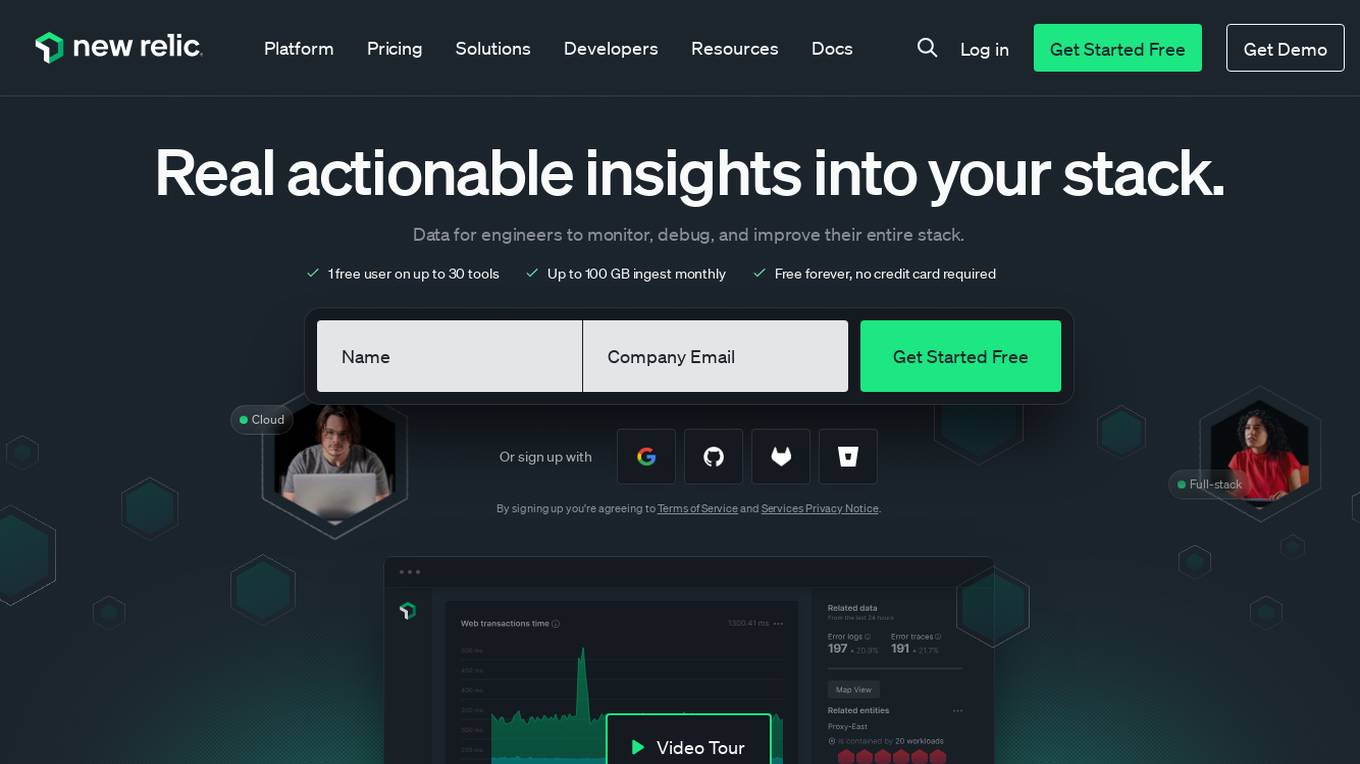
New Relic
New Relic is an AI monitoring platform that offers an all-in-one observability solution for monitoring, debugging, and improving the entire technology stack. With over 30 capabilities and 750+ integrations, New Relic provides the power of AI to help users gain insights and optimize performance across various aspects of their infrastructure, applications, and digital experiences.

Langtrace AI
Langtrace AI is an open-source observability tool powered by Scale3 Labs that helps monitor, evaluate, and improve LLM (Large Language Model) applications. It collects and analyzes traces and metrics to provide insights into the ML pipeline, ensuring security through SOC 2 Type II certification. Langtrace supports popular LLMs, frameworks, and vector databases, offering end-to-end observability and the ability to build and deploy AI applications with confidence.
3 - Open Source AI Tools
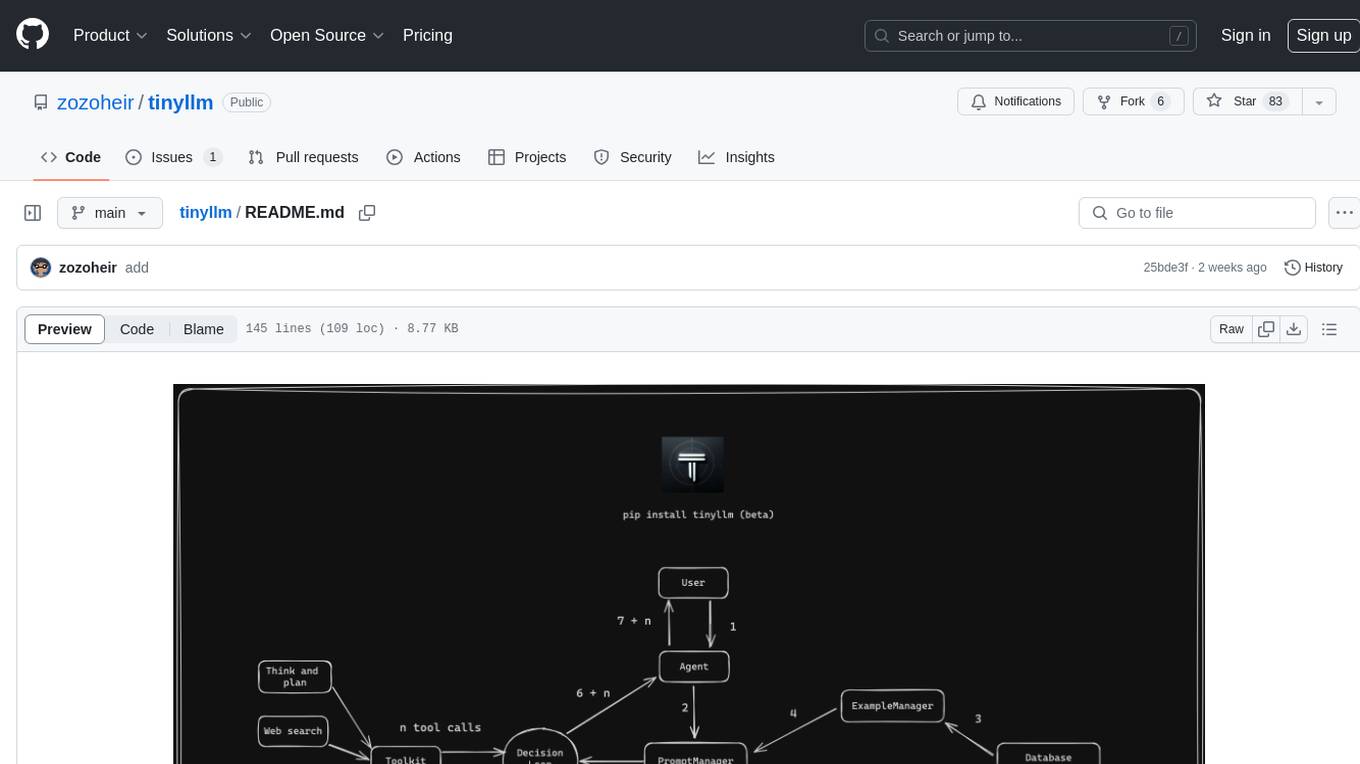
tinyllm
tinyllm is a lightweight framework designed for developing, debugging, and monitoring LLM and Agent powered applications at scale. It aims to simplify code while enabling users to create complex agents or LLM workflows in production. The core classes, Function and FunctionStream, standardize and control LLM, ToolStore, and relevant calls for scalable production use. It offers structured handling of function execution, including input/output validation, error handling, evaluation, and more, all while maintaining code readability. Users can create chains with prompts, LLM models, and evaluators in a single file without the need for extensive class definitions or spaghetti code. Additionally, tinyllm integrates with various libraries like Langfuse and provides tools for prompt engineering, observability, logging, and finite state machine design.
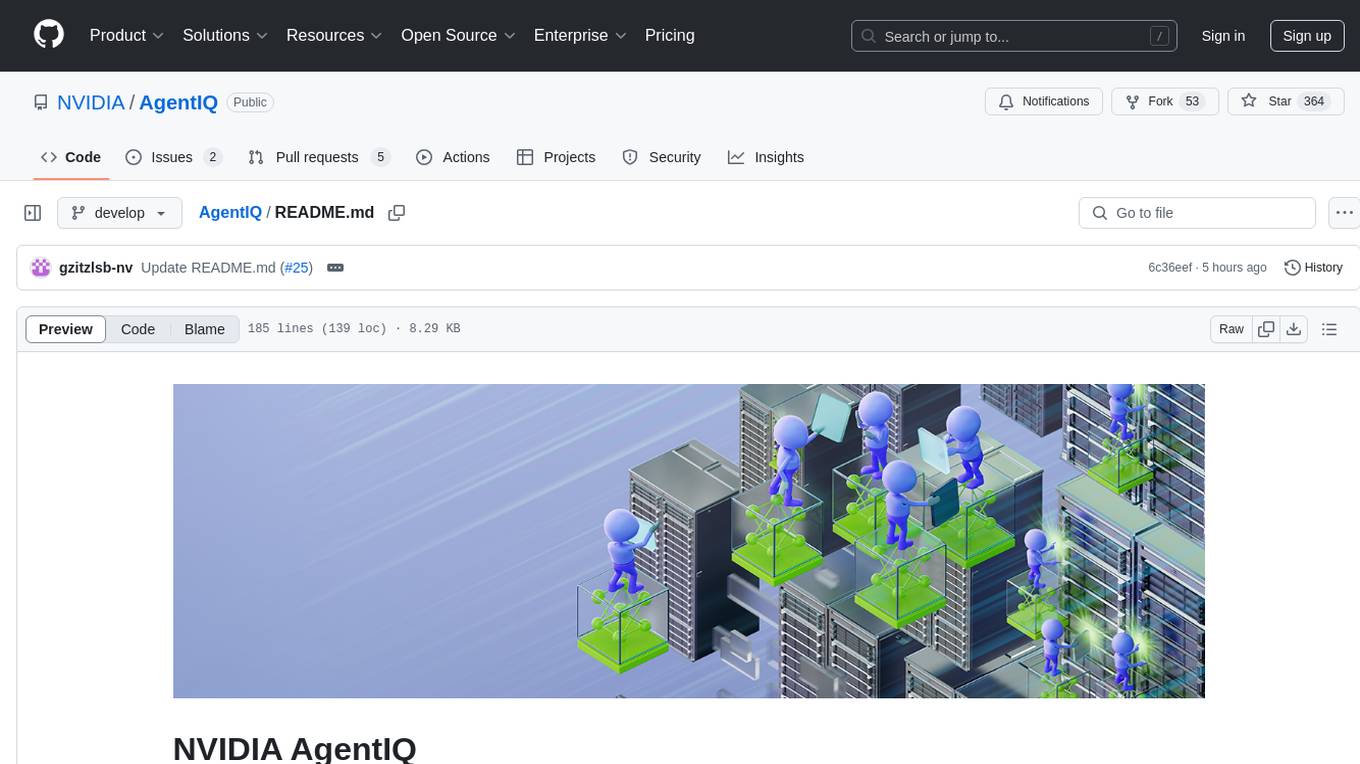
AgentIQ
AgentIQ is a flexible library designed to seamlessly integrate enterprise agents with various data sources and tools. It enables true composability by treating agents, tools, and workflows as simple function calls. With features like framework agnosticism, reusability, rapid development, profiling, observability, evaluation system, user interface, and MCP compatibility, AgentIQ empowers developers to move quickly, experiment freely, and ensure reliability across agent-driven projects.
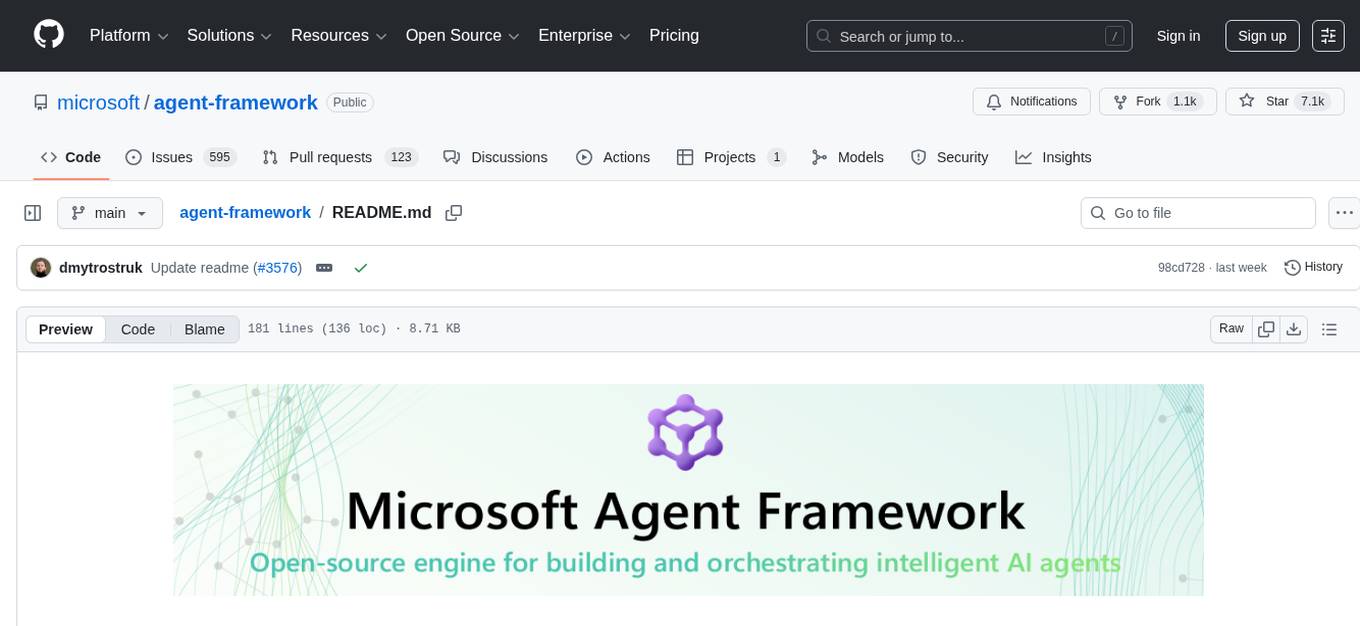
agent-framework
Microsoft Agent Framework is a comprehensive multi-language framework for building, orchestrating, and deploying AI agents with support for both .NET and Python implementations. It provides everything from simple chat agents to complex multi-agent workflows with graph-based orchestration. The framework offers features like graph-based workflows, AF Labs for experimental packages, DevUI for interactive developer UI, support for Python and C#/.NET, observability with OpenTelemetry integration, multiple agent provider support, and flexible middleware system. Users can find documentation, tutorials, and user guides to get started with building agents and workflows. The framework also supports various LLM providers and offers contributor resources like a contributing guide, Python development guide, design documents, and architectural decision records.
20 - OpenAI Gpts
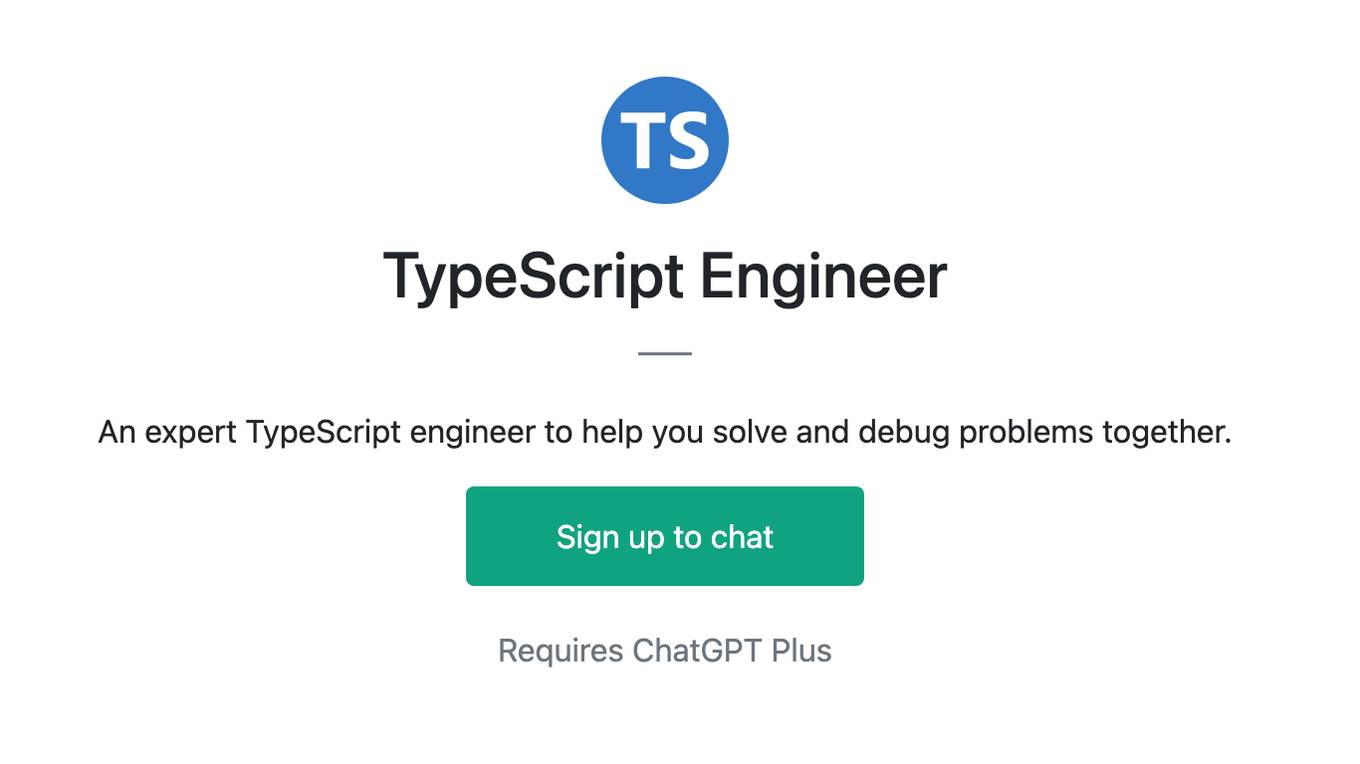
TypeScript Engineer
An expert TypeScript engineer to help you solve and debug problems together.
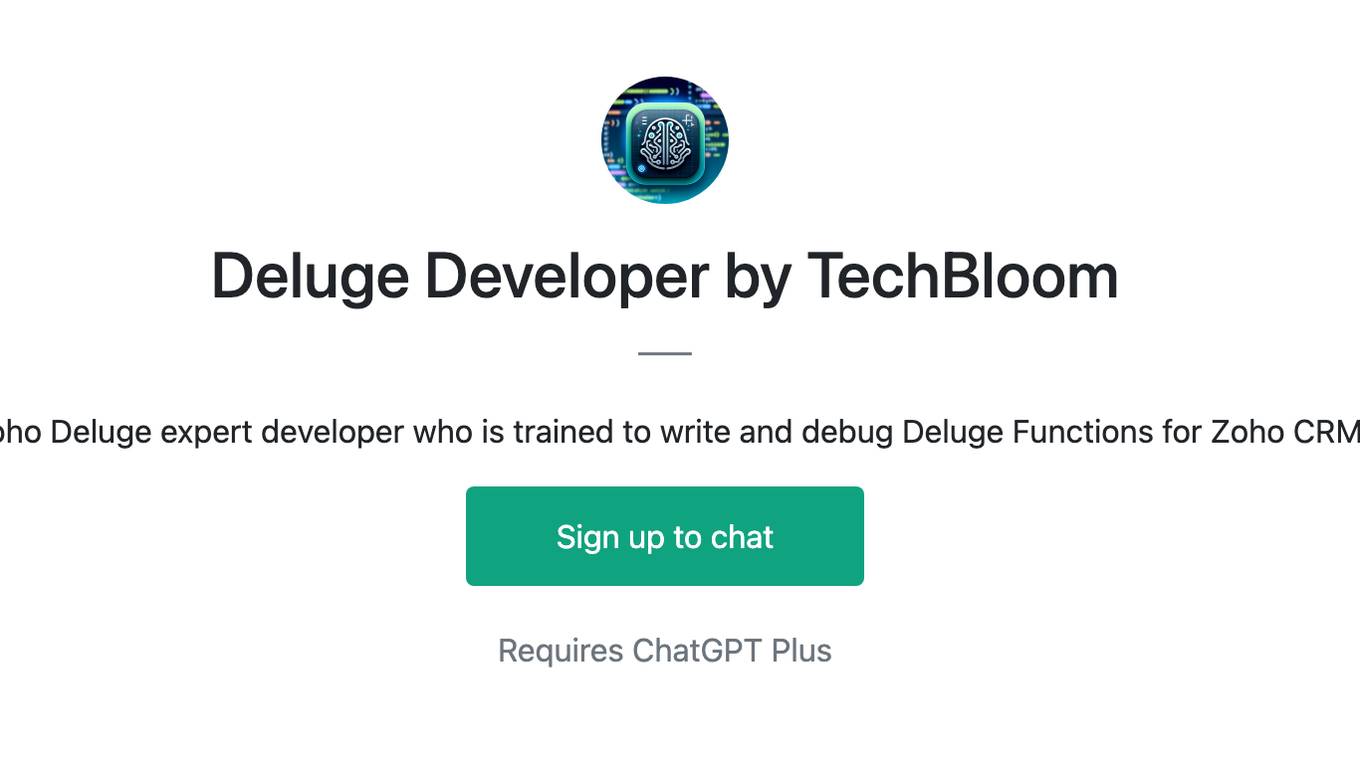
Deluge Developer by TechBloom
Zoho Deluge expert developer who is trained to write and debug Deluge Functions for Zoho CRM
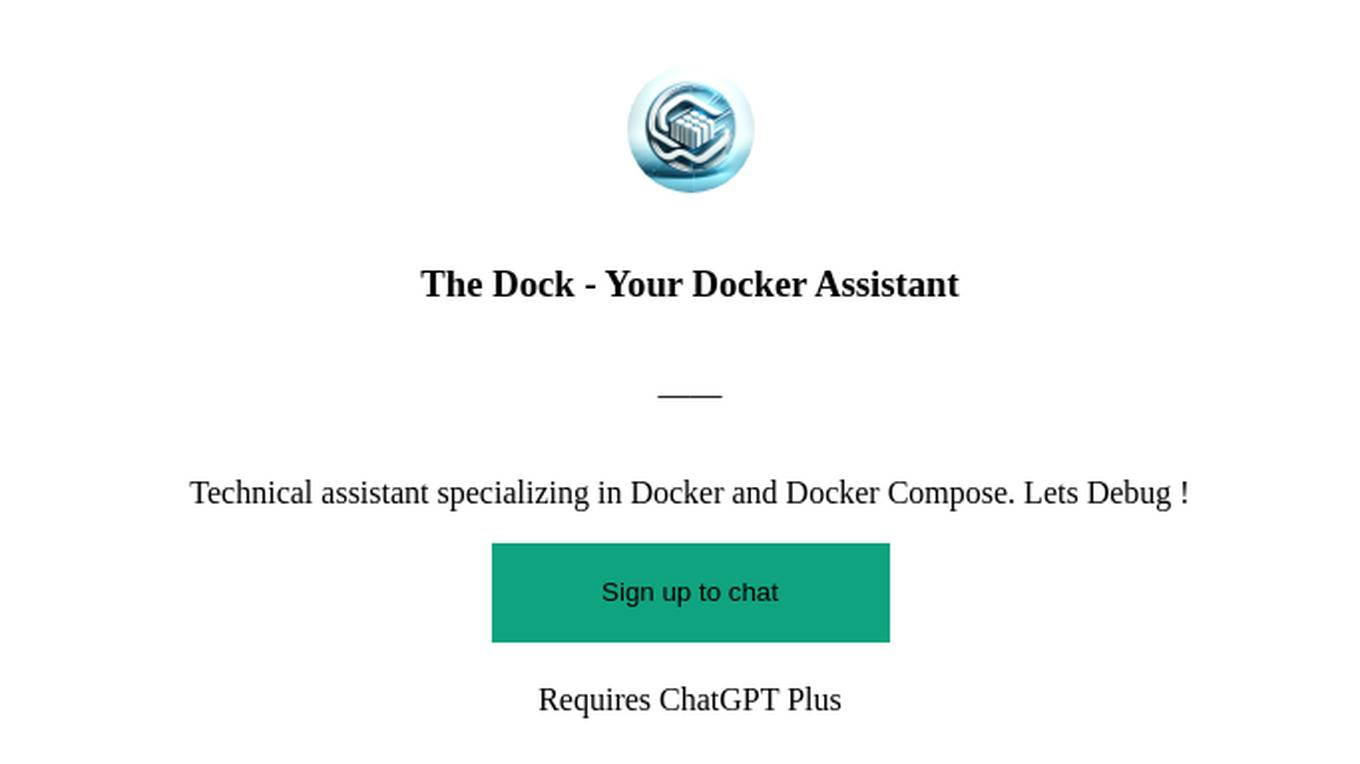
The Dock - Your Docker Assistant
Technical assistant specializing in Docker and Docker Compose. Lets Debug !
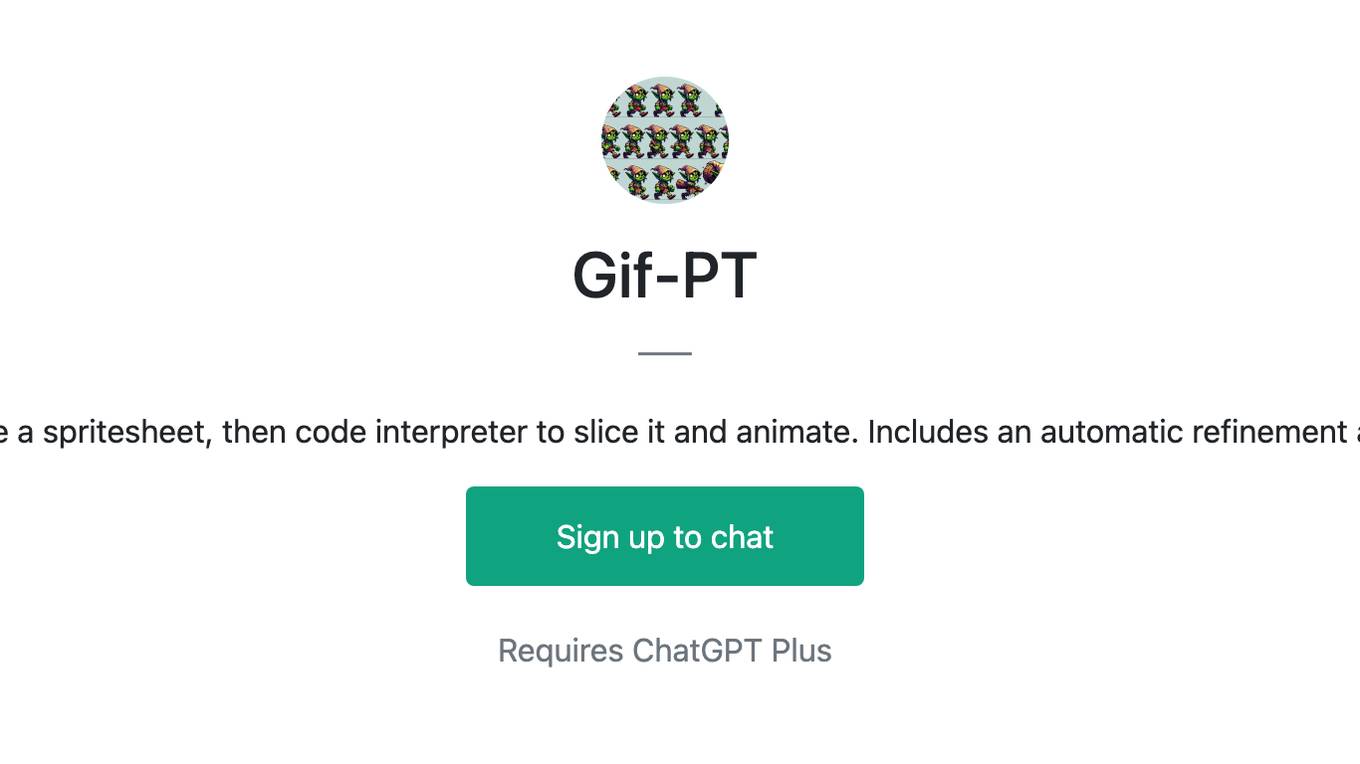
Gif-PT
Gif generator. Uses Dalle3 to make a spritesheet, then code interpreter to slice it and animate. Includes an automatic refinement and debug mode. v1.2 GPTavern

María Dolores
Inspired by a TV character, lives on a farm, analytical and philosophical, with a 'DEBUG' mode.
